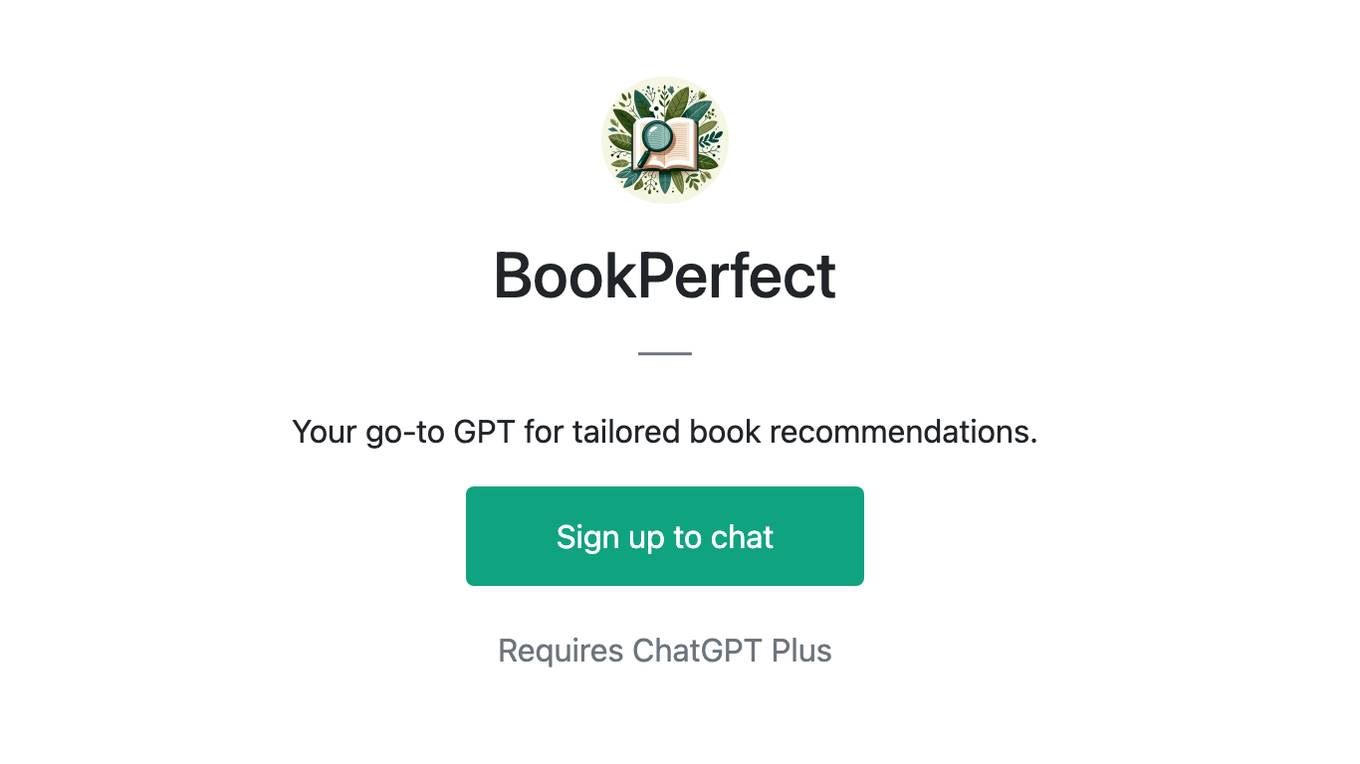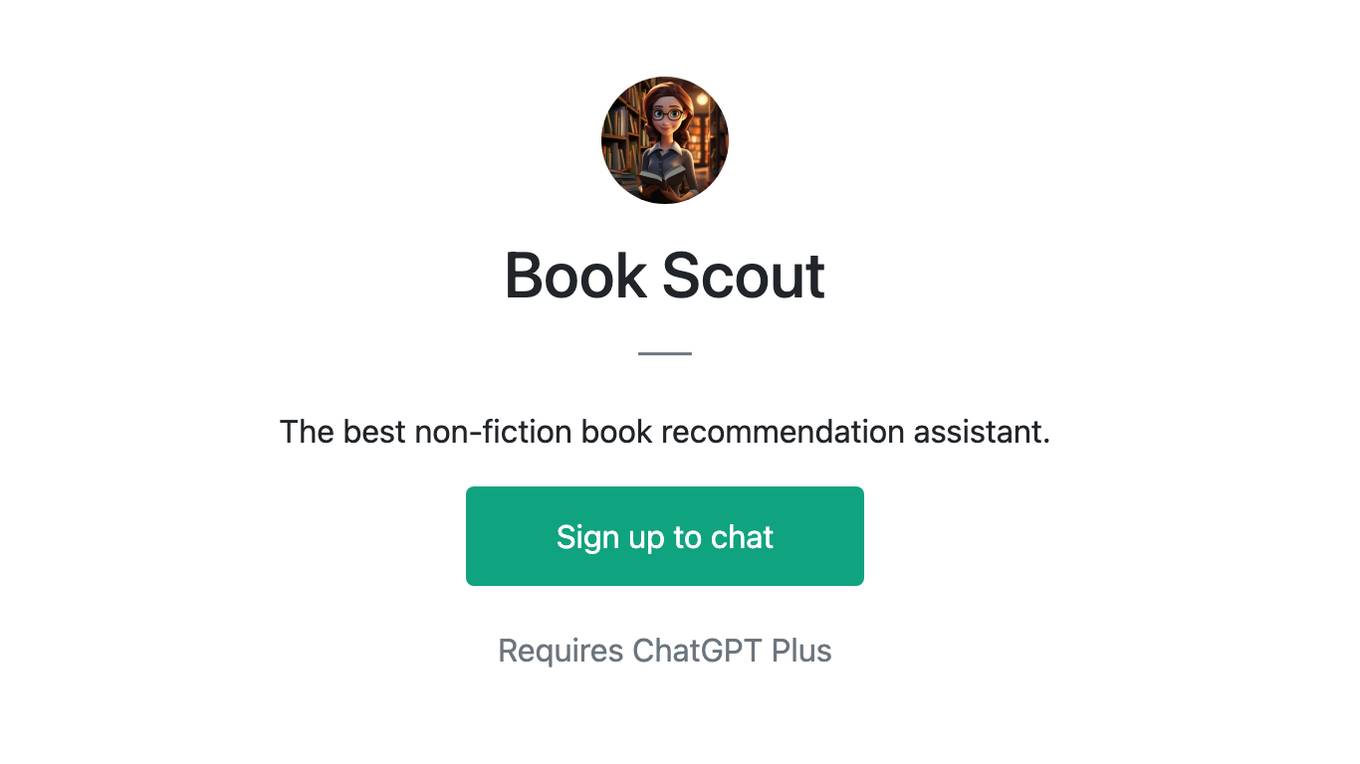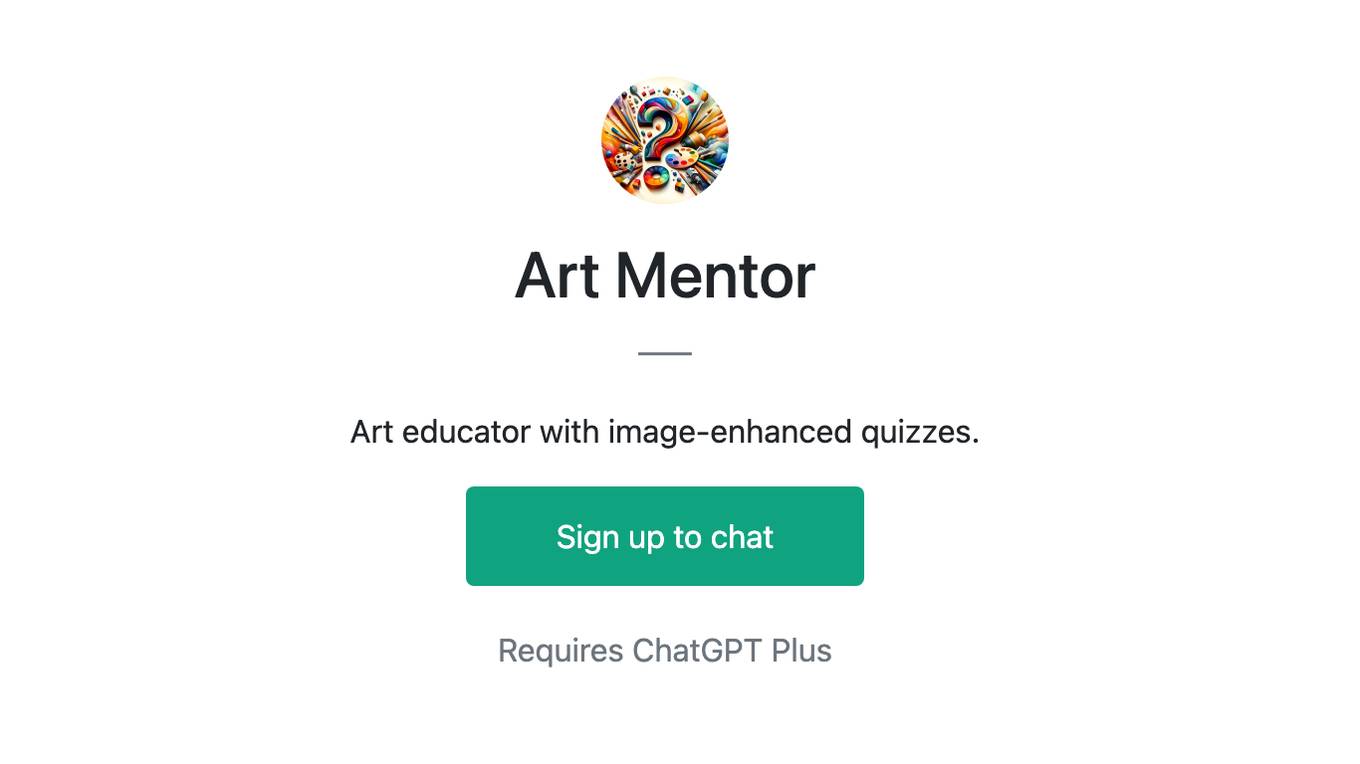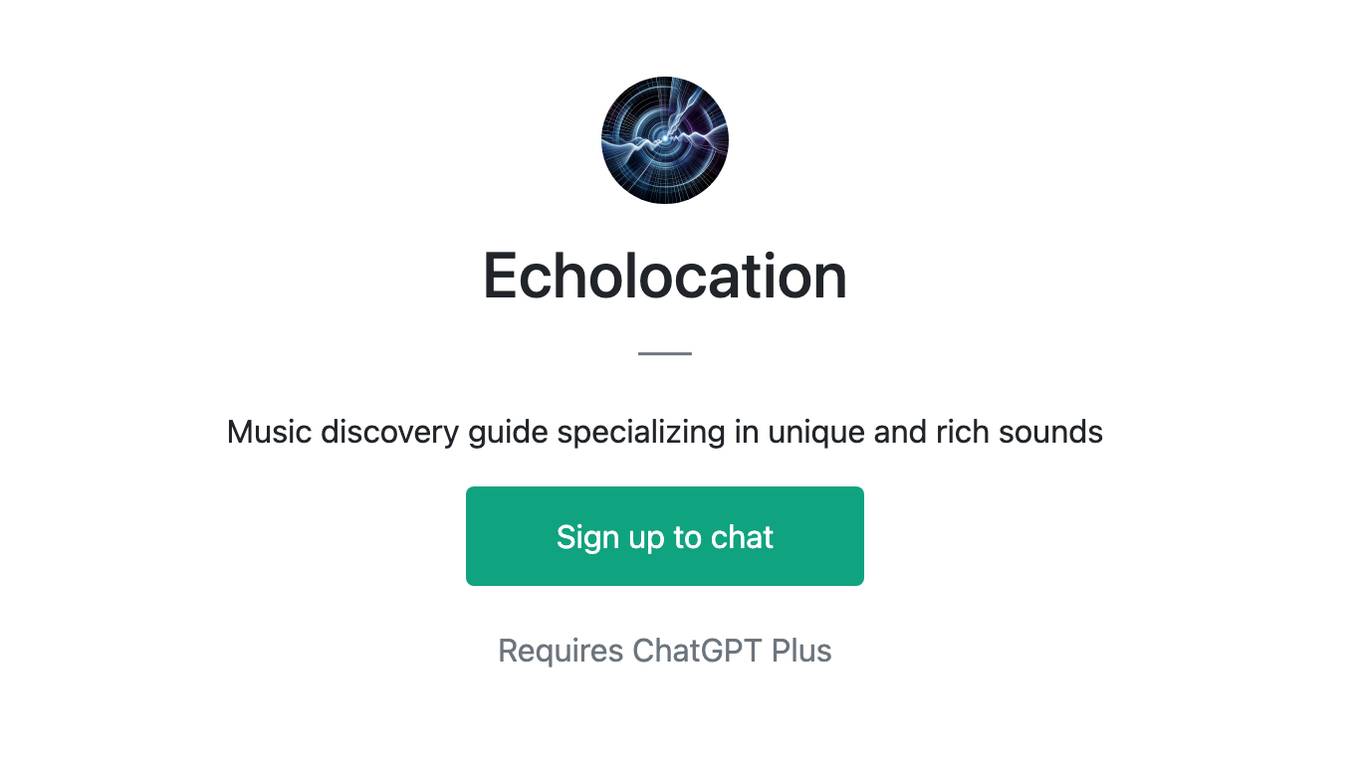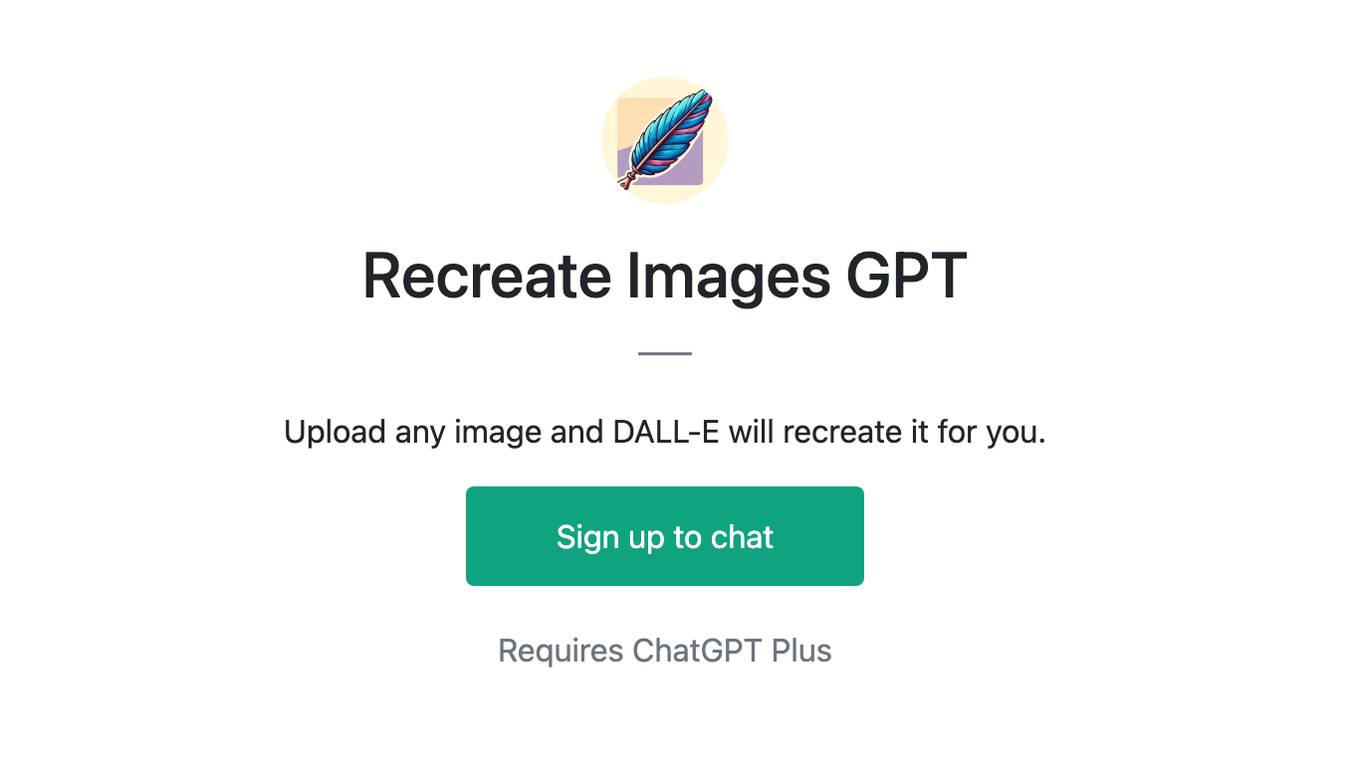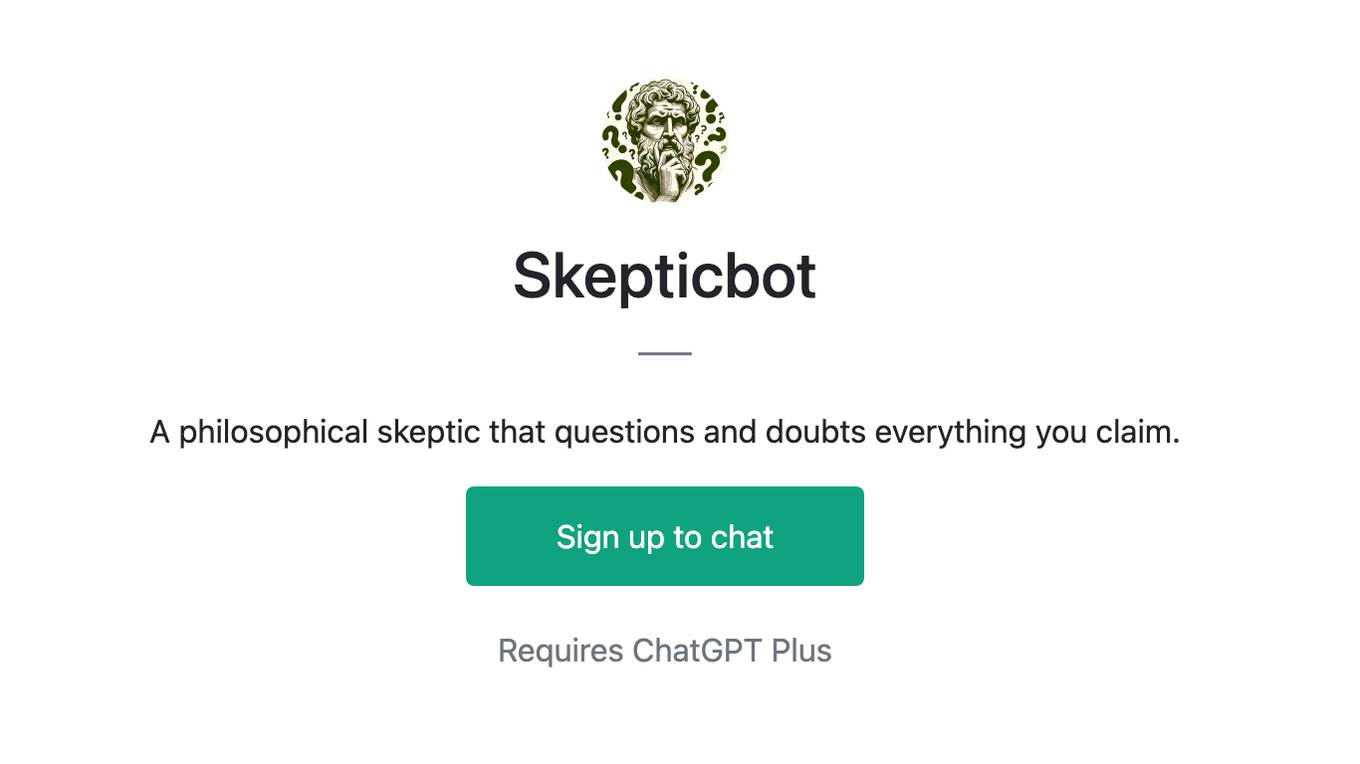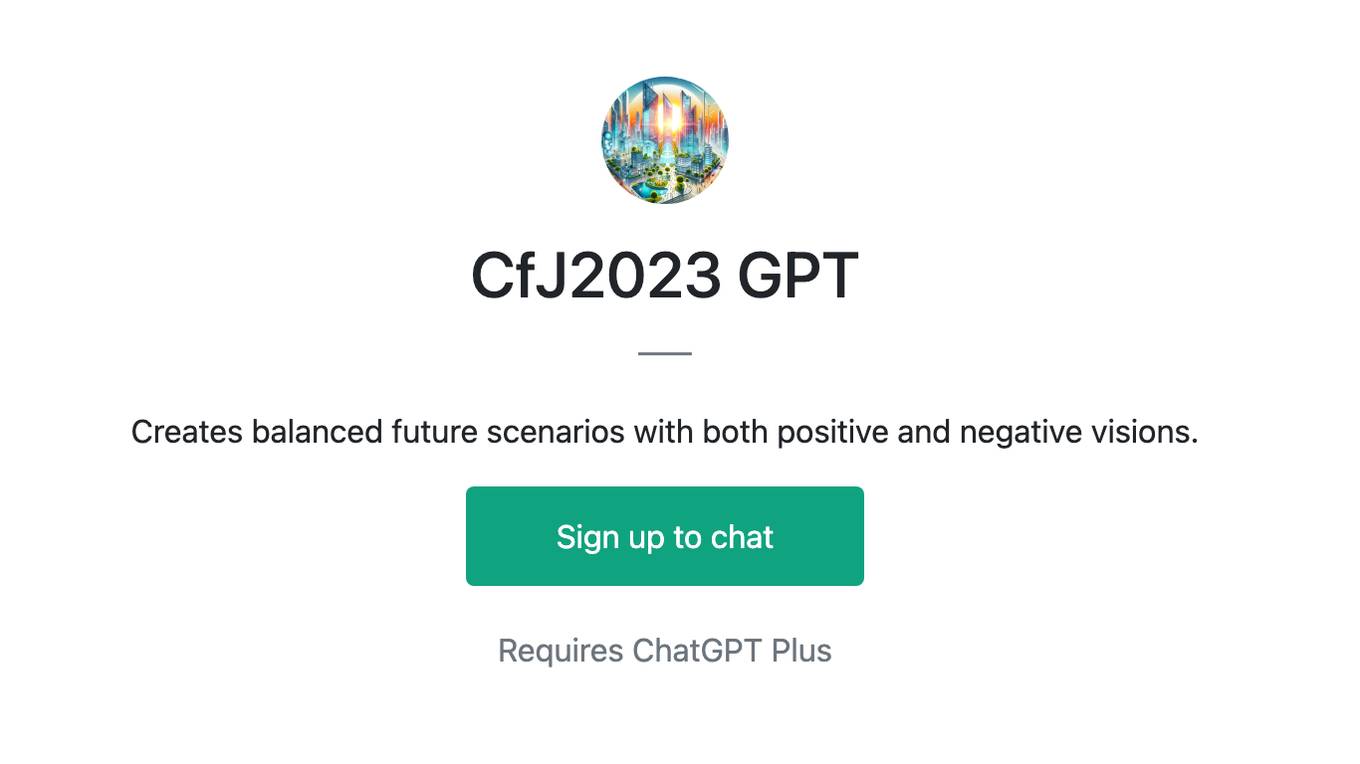Best AI tools for< Explore Different Models >
20 - AI tool Sites
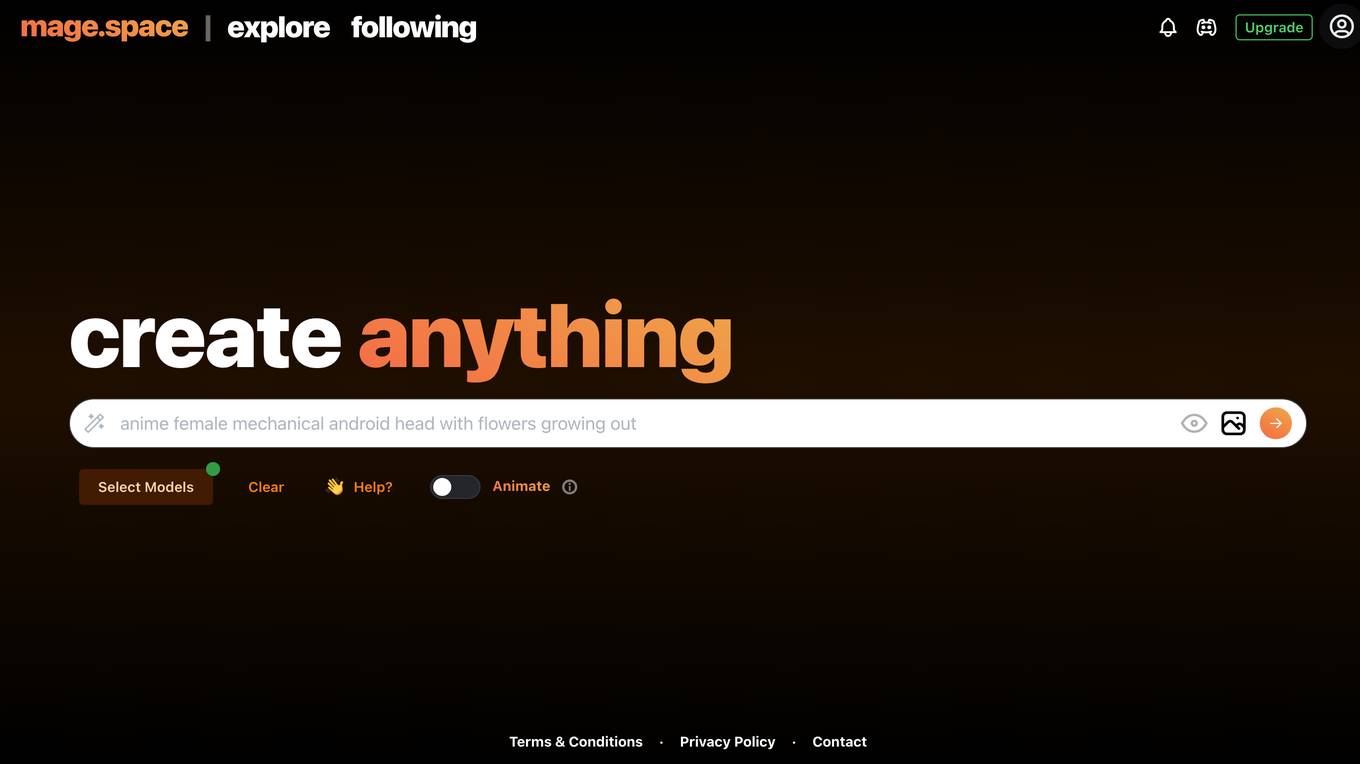
Mage
Mage is a free, fast, and unlimited stable diffusion tool that allows users to create anything they can imagine. With Mage, users can explore different models, import their own art, and use a variety of settings to create unique and realistic images. Mage is perfect for artists, designers, and anyone who wants to explore the possibilities of AI-generated art.
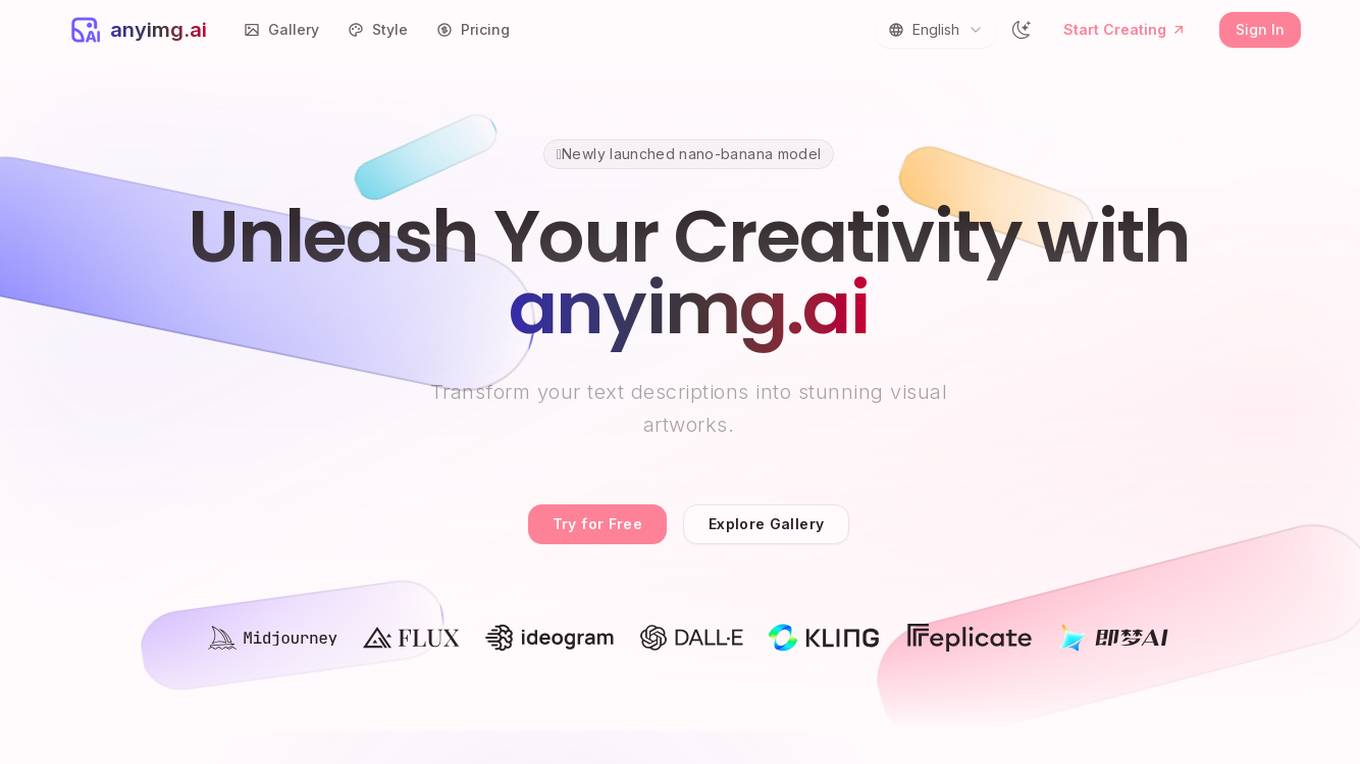
anyimg.ai
anyimg.ai is a powerful AI image generation platform that transforms ideas into stunning visual artworks using cutting-edge AI models. It offers access to various AI models optimized for different artistic styles and use cases. The platform is trusted by over 50,000 artists and has generated over 1 million images. Users can create professional-grade art styles for games, marketing visuals, concept art, product visuals, social media content, and more. With commercial licensing and high-quality outputs, anyimg.ai revolutionizes the creative process for designers, artists, and creators.
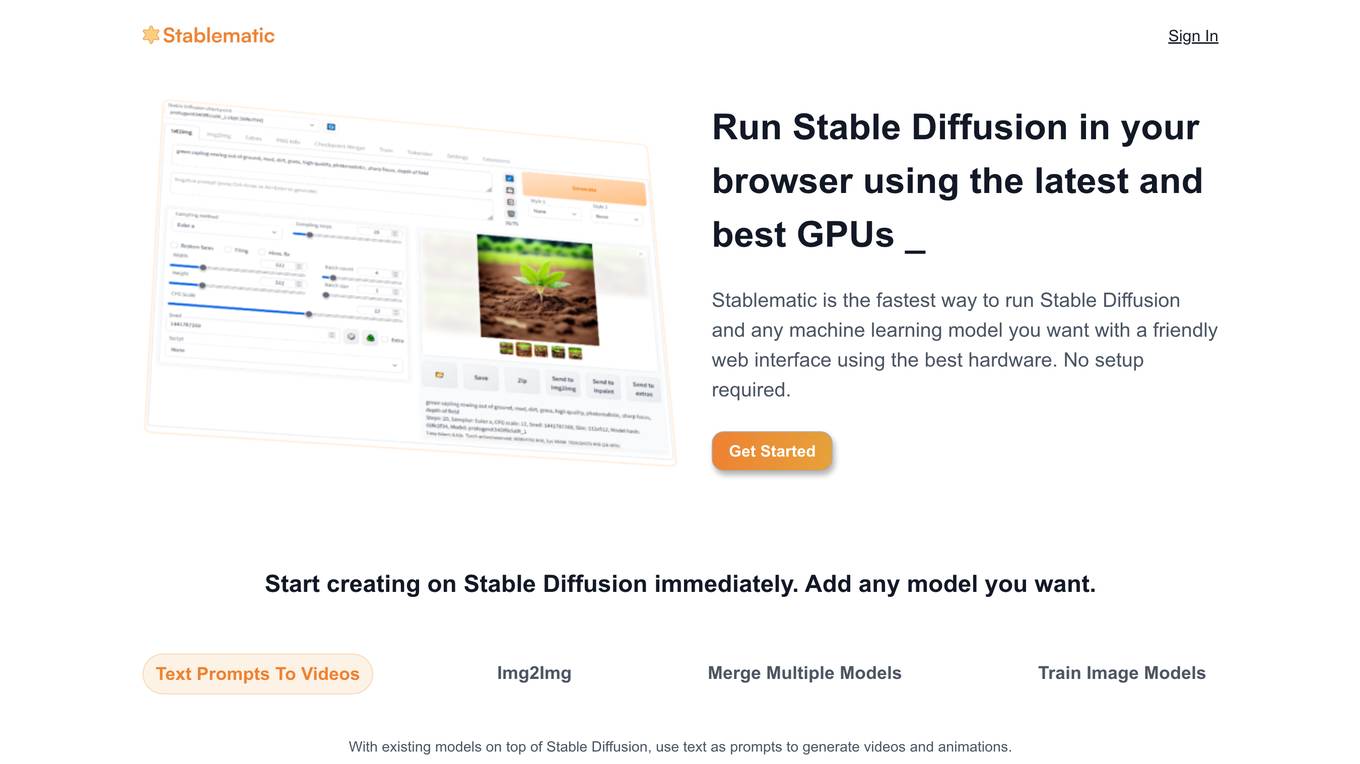
Stablematic
Stablematic is a web-based platform that allows users to run Stable Diffusion and other machine learning models without the need for local setup or hardware limitations. It provides a user-friendly interface, pre-installed plugins, and dedicated GPU resources for a seamless and efficient workflow. Users can generate images and videos from text prompts, merge multiple models, train custom models, and access a range of pre-trained models, including Dreambooth and CivitAi models. Stablematic also offers API access for developers and dedicated support for users to explore and utilize the capabilities of Stable Diffusion and other machine learning models.
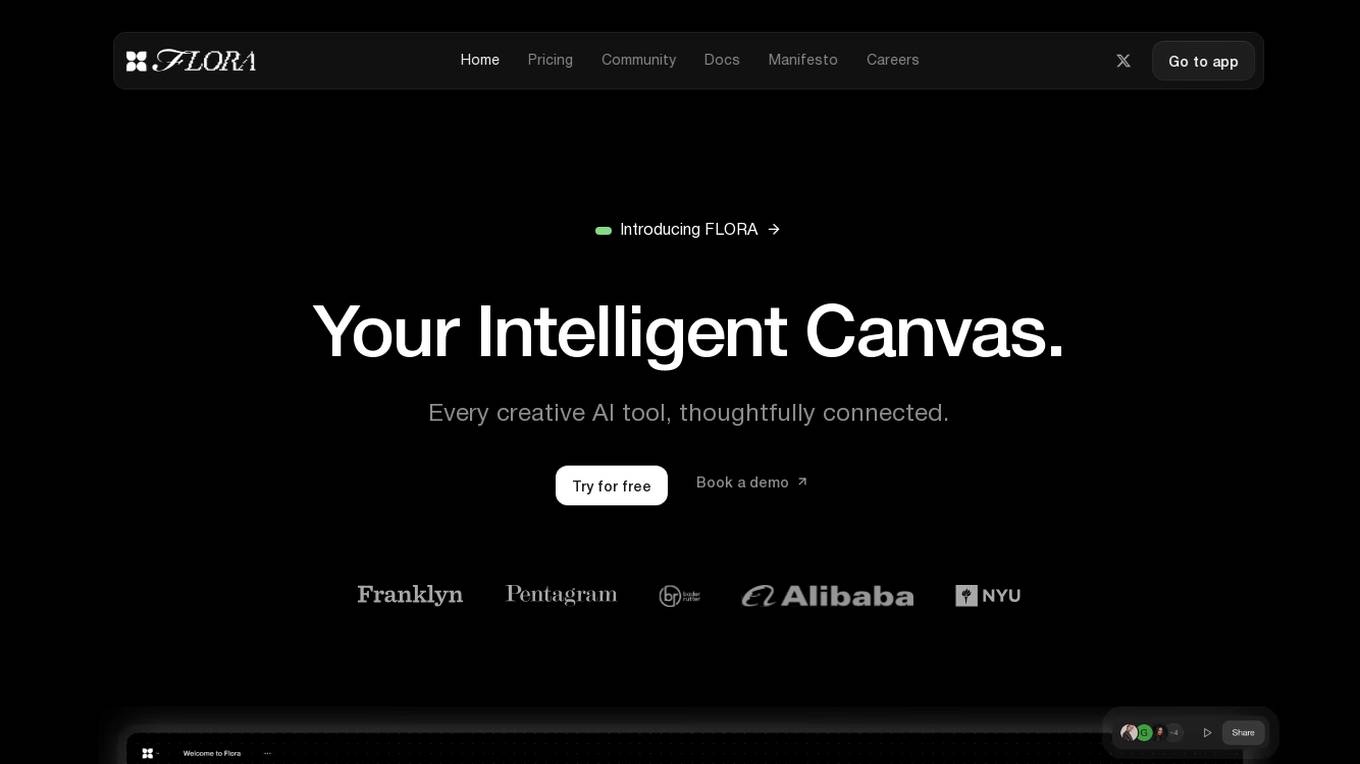
FLORA
FLORA is an intelligent canvas that serves as a creative AI tool, connecting various AI applications to help users ideate, iterate, and bring their ideas to life. It allows real-time collaboration among team members using favorite AI tools, offering a platform to explore different workflows. FLORA simplifies AI complexities by curating the best text, image, and video models, empowering users to unleash their creativity on a new canvas.
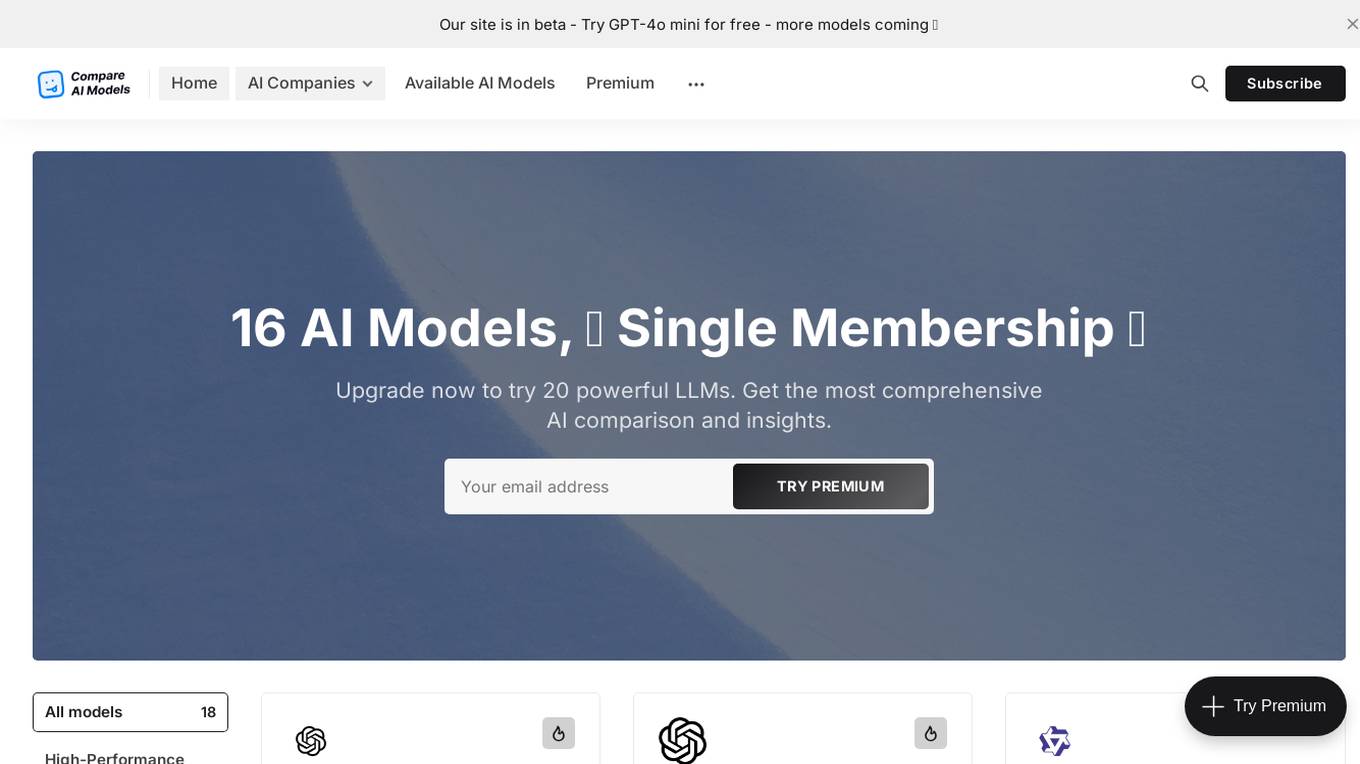
Aicado.ai
Aicado.ai is an AI tool that provides comprehensive comparisons and insights into various AI models such as GPT-4, Llama, Gemini, and more. Users can access detailed reviews and features to find the best AI model for their specific needs. The platform offers a premium dashboard for in-depth analysis and comparison of different AI models.
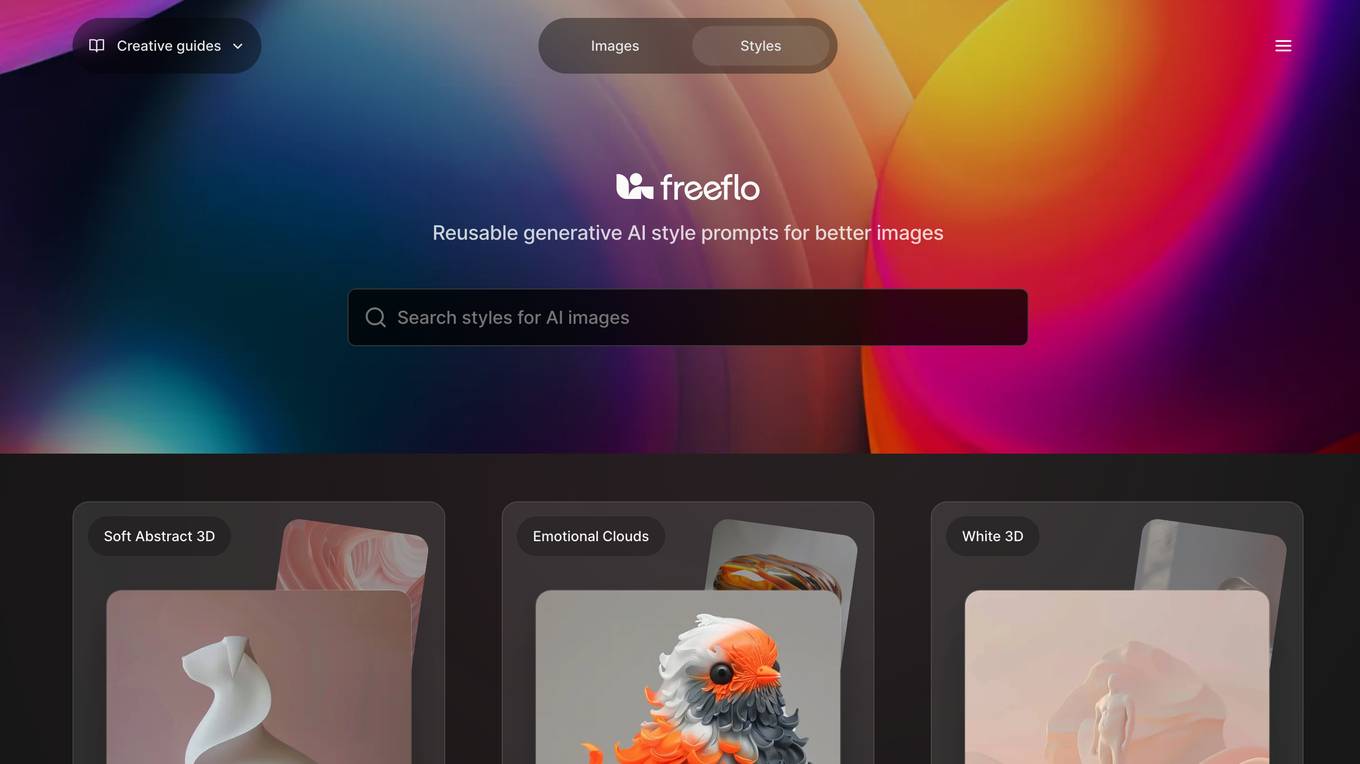
AI Image Prompts
The website offers AI image prompts for various AI applications such as Midjourney, Dall-E, and Stable Diffusion Styles. Users can generate creative and unique images using the provided prompts. The platform provides guides on how to use different AI models and offers a range of styles and themes for image creation. It aims to assist creators in producing visually appealing content effortlessly.
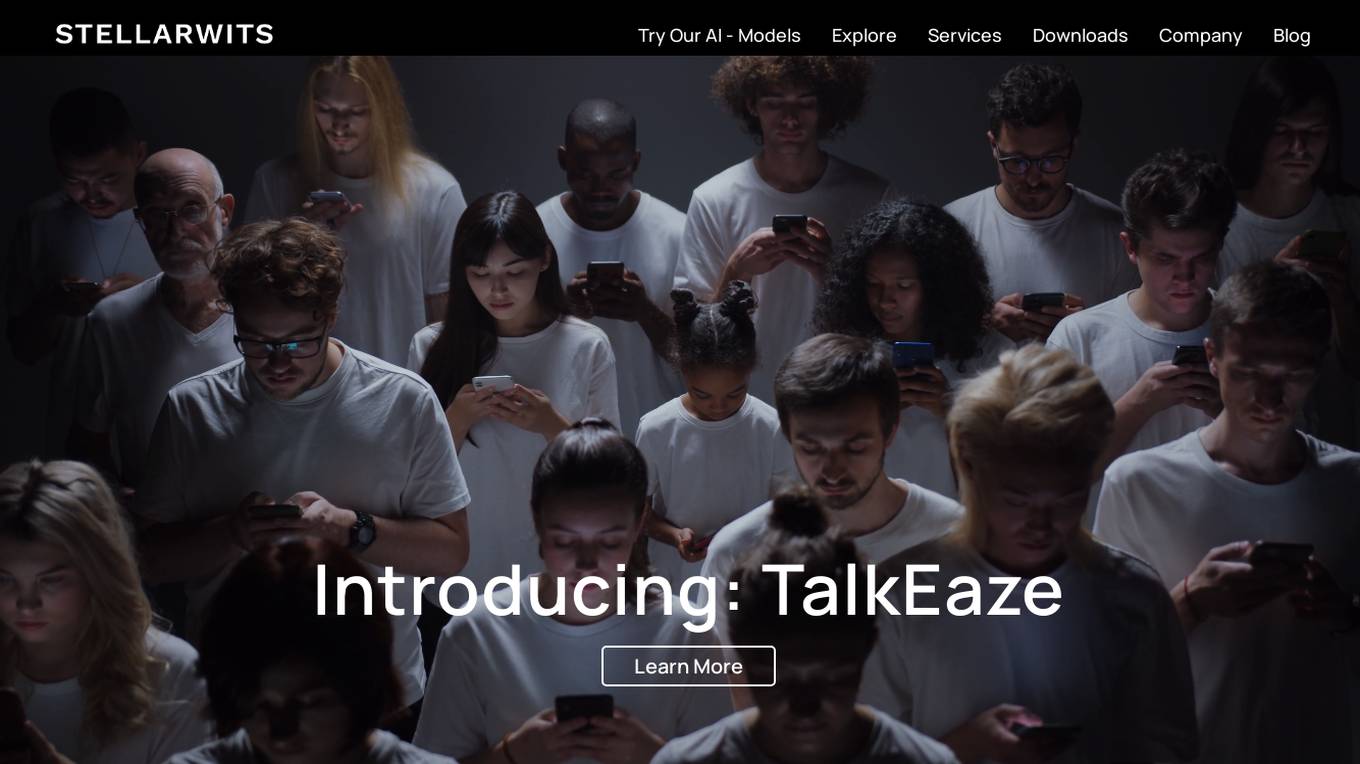
STELLARWITS
STELLARWITS is an AI solutions and software platform that empowers users to explore cutting-edge technology and innovation. The platform offers AI models with versatile capabilities, ranging from content generation to data analysis to problem-solving. Users can engage directly with the technology, experiencing its power in real-time. With a focus on transforming ideas into technology, STELLARWITS provides tailored solutions in software and AI development, delivering intelligent systems and machine learning models for innovative and efficient solutions. The platform also features a download hub with a curated selection of solutions to enhance the digital experience. Through blogs and company information, users can delve deeper into the narrative of STELLARWITS, exploring its mission, vision, and commitment to reshaping the tech landscape.
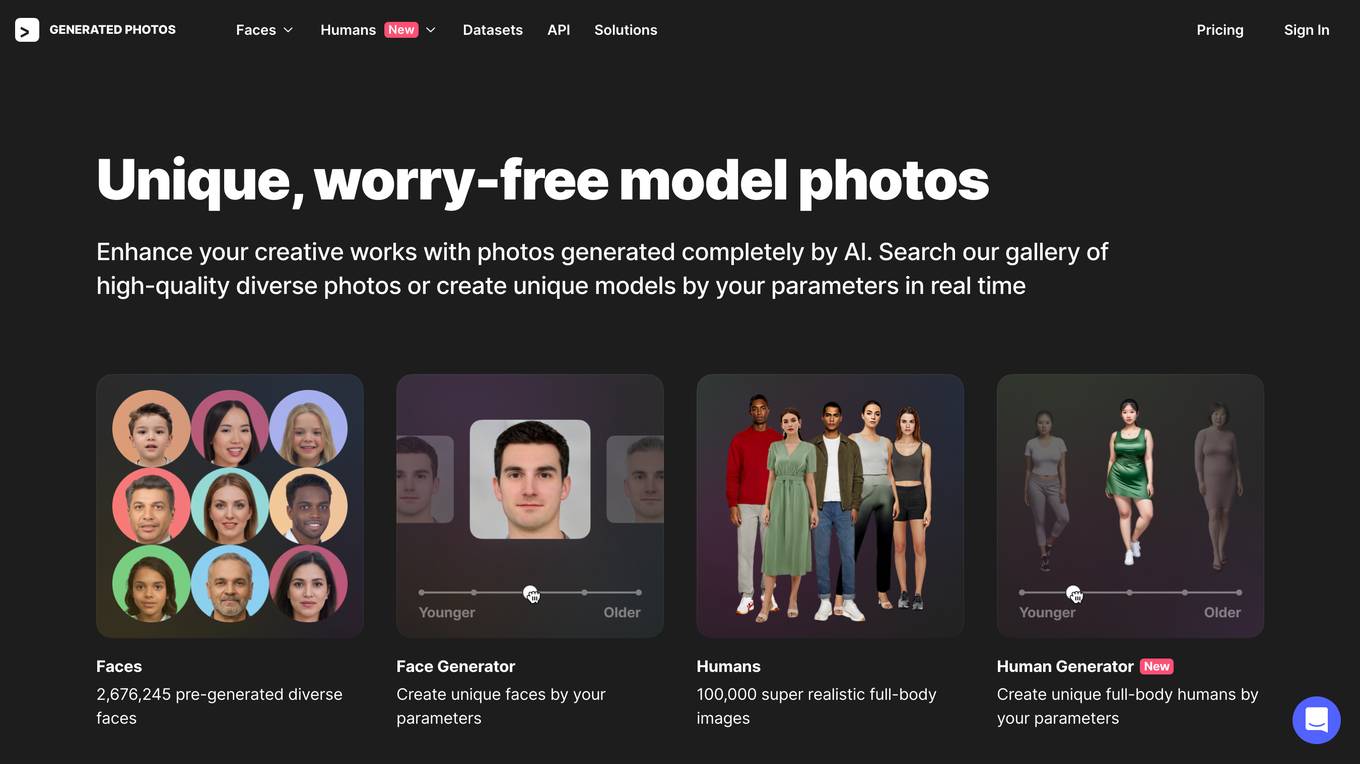
Generated Photos
Generated Photos is an AI application that offers a platform for creating unique, worry-free model photos using AI-generated faces and full-body human images. Users can access a vast library of pre-generated diverse faces and humans, or customize their own models in real time. The application caters to various industries such as advertising, design, marketing, research, and machine learning, providing high-quality and realistic images for different purposes. With features like face and human generators, bulk download options, and API integration, Generated Photos simplifies the process of finding and creating custom visual content.
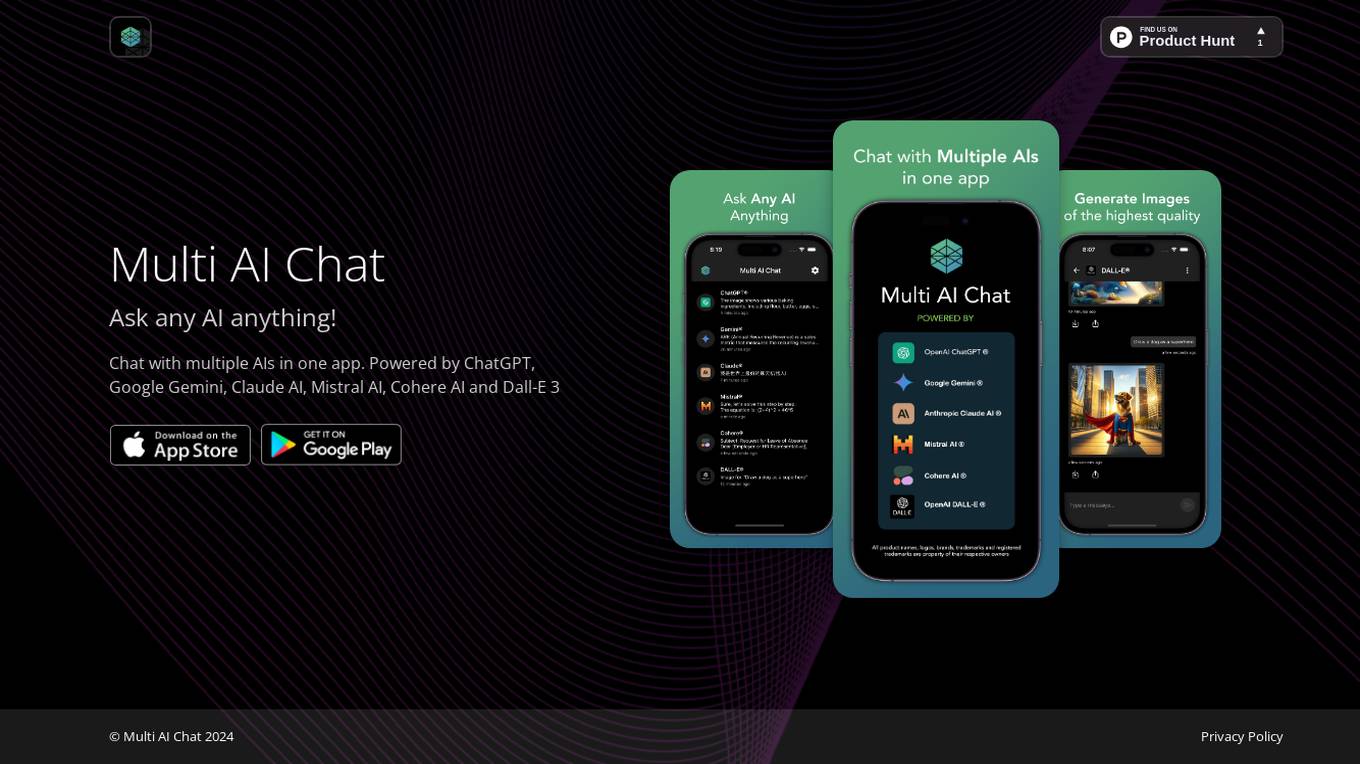
Multi AI Chat
Multi AI Chat is an AI-powered application that allows users to interact with various AI models by asking questions. The platform enables users to seek information, get answers, and engage in conversations with AI on a wide range of topics. With Multi AI Chat, users can explore the capabilities of different AI technologies and enhance their understanding of artificial intelligence.
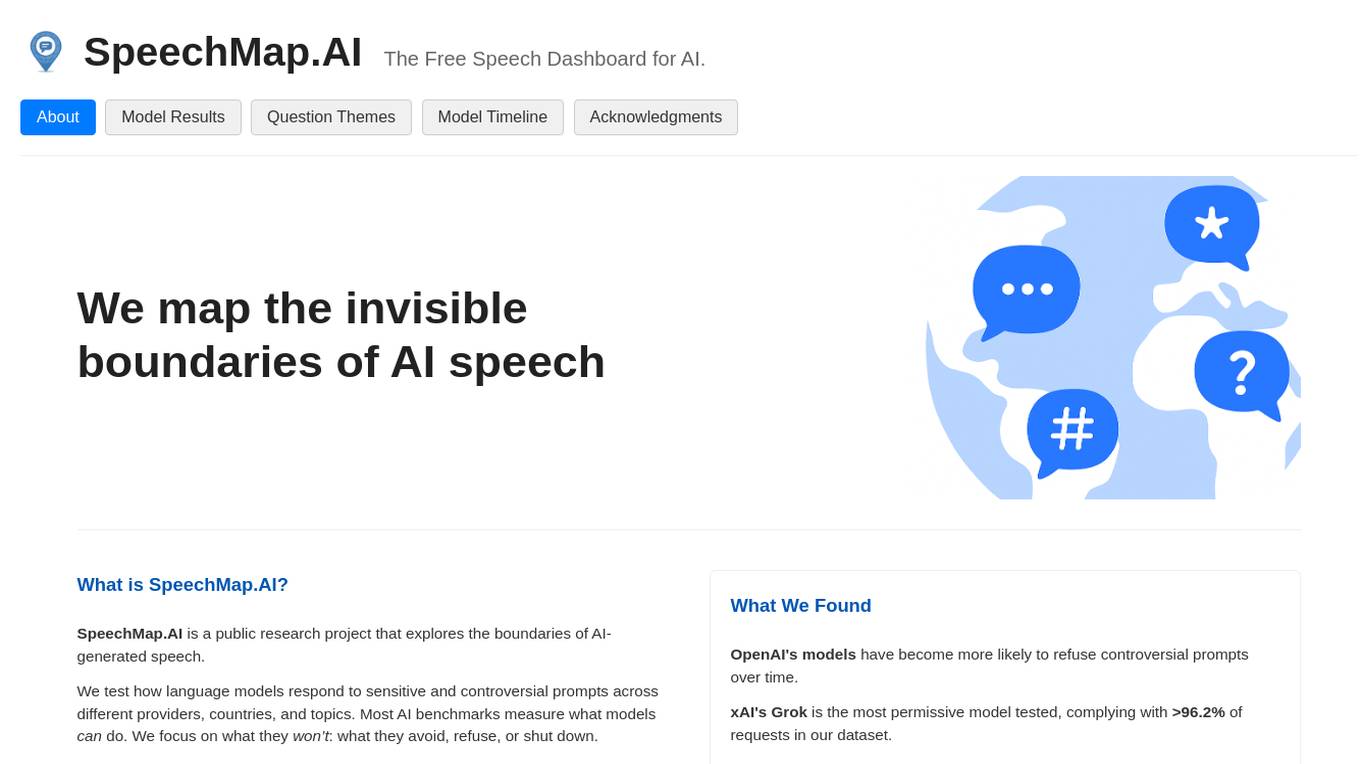
SpeechMap.AI
SpeechMap.AI is a public research project that explores the boundaries of AI-generated speech. It focuses on testing how language models respond to sensitive and controversial prompts across different providers, countries, and topics. The platform aims to reveal the invisible boundaries of AI speech by analyzing what models avoid, refuse, or shut down. By measuring and comparing AI models' responses, SpeechMap.AI sheds light on the evolving landscape of AI-generated speech and its impact on public expression.
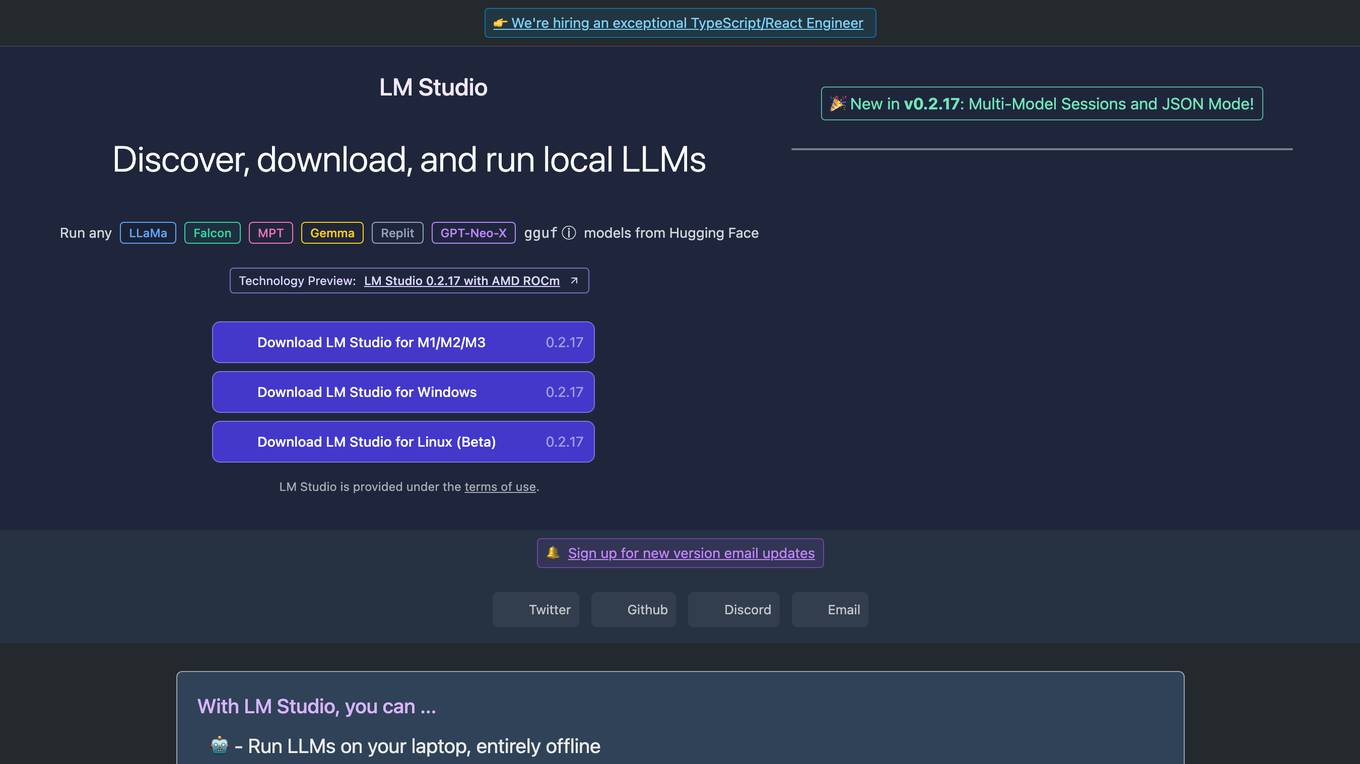
LM Studio
LM Studio is an AI tool designed for discovering, downloading, and running local LLMs (Large Language Models). Users can run LLMs on their laptops offline, use models through an in-app Chat UI or a local server, download compatible model files from HuggingFace repositories, and discover new LLMs. The tool ensures privacy by not collecting data or monitoring user actions, making it suitable for personal and business use. LM Studio supports various models like ggml Llama, MPT, and StarCoder on Hugging Face, with minimum hardware/software requirements specified for different platforms.
Avatar AI™
Avatar AI™ is a cutting-edge AI application that allows users to create over 120 unique avatar styles inspired by the viral AI avatar trend. Users can explore a wide range of creative looks, from futuristic designs to artistic interpretations, and personalize their digital identity with AI-generated avatars. The application enables users to save time and money by conducting AI photo shoots from their laptop or phone instead of hiring expensive photographers. With features like creating AI models of oneself, generating endless AI photos, and creating AI influencers from scratch, Avatar AI™ revolutionizes the way people interact with photography and digital identity.

AIVA
AIVA is an AI music generation assistant that allows users to create new songs in over 250 different styles in seconds. It is designed for both beginners and experienced music makers, and offers ultimate customizability, allowing users to create their own style models, upload audio or MIDI influences, edit generated tracks, and download in any file format. AIVA also eliminates licensing headaches by allowing users to own the full copyright of their compositions with a Pro subscription.
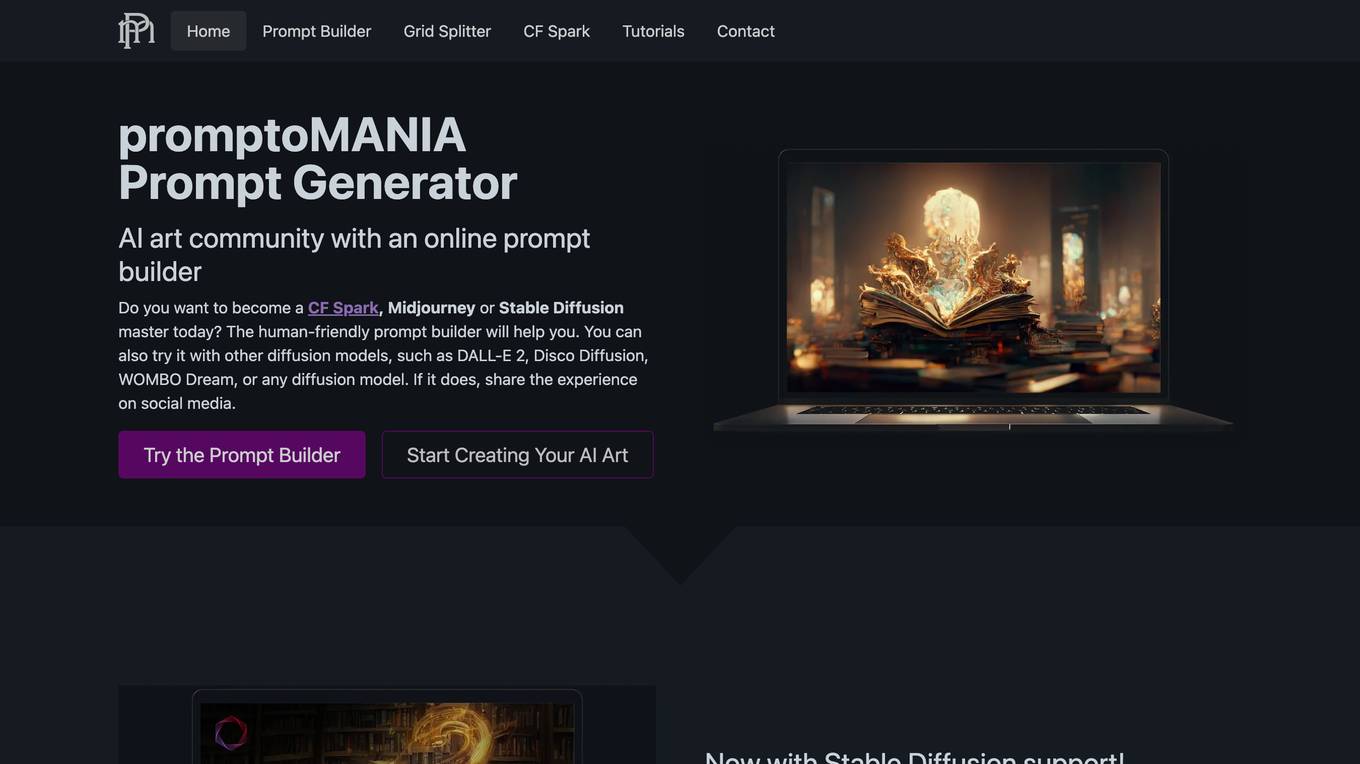
promptoMANIA
promptoMANIA is an AI art community and prompt generator that allows users to create AI images using various diffusion models like CF Spark, Midjourney, and Stable Diffusion. Users can generate high-quality and detailed AI art by providing prompts and selecting different styles and references. The platform offers a user-friendly prompt builder and tools like Grid Splitter to enhance the AI art creation experience. promptoMANIA is a free online tool with no subscription or sign-up required.
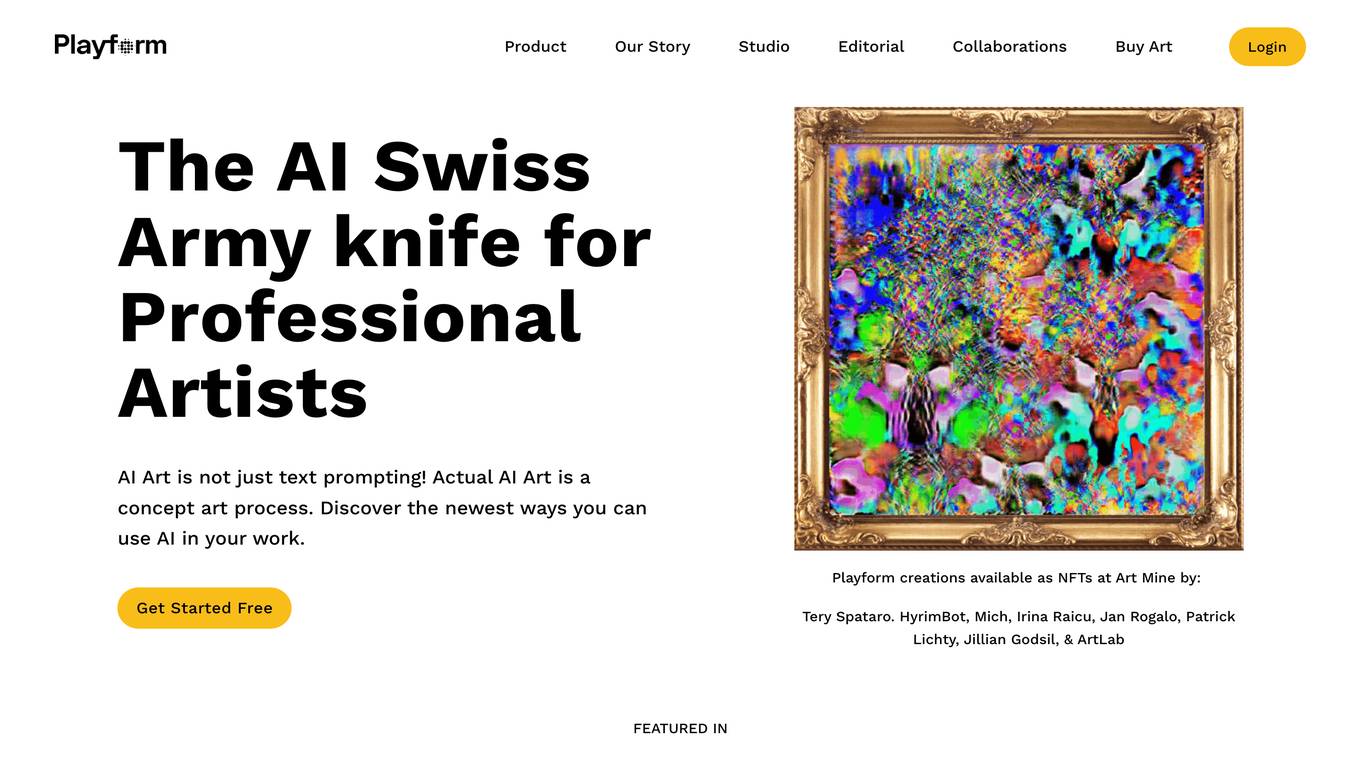
Playform
Playform is an AI art generator and suite of AI tools designed for artists, creators, and curious minds. It offers a range of features such as image generation, face swapping, AI model training, sketch stylization, and more. Playform provides modular tools for different creative workflows, ensuring privacy and no prompt fatigue. Users can create art in various styles, train custom AI models, and generate images without using text prompts. The platform caters to professional artists, content creators, social marketers, and casual creators looking to explore visual AI.
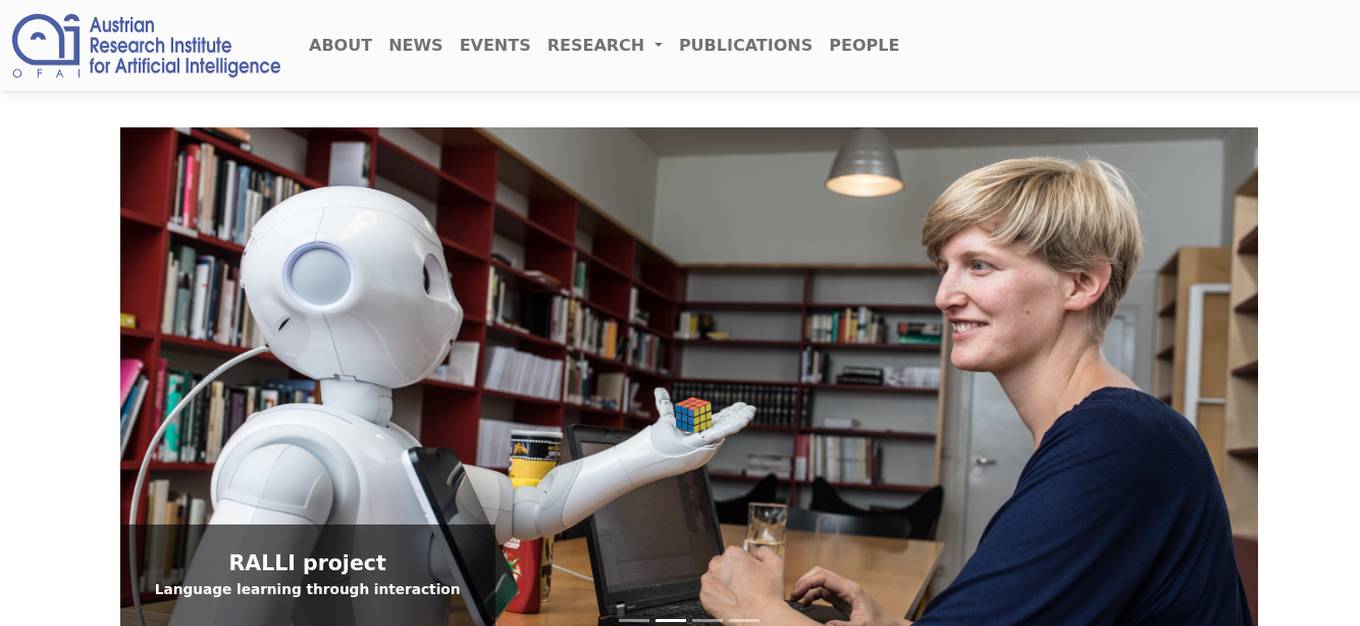
Austrian Research Institute for Artificial Intelligence
The Austrian Research Institute for Artificial Intelligence (OFAI) is a renowned institute based in Vienna, Austria, with a focus on AI research and development. With over 40 years of excellence in artificial intelligence, OFAI is dedicated to advancing language learning, computational linguistics, and AI applications. The institute collaborates on various projects, software development, and publications, contributing significantly to the field of AI. OFAI's work encompasses a wide range of research areas and resources, aiming to explore the potential of AI in different domains.
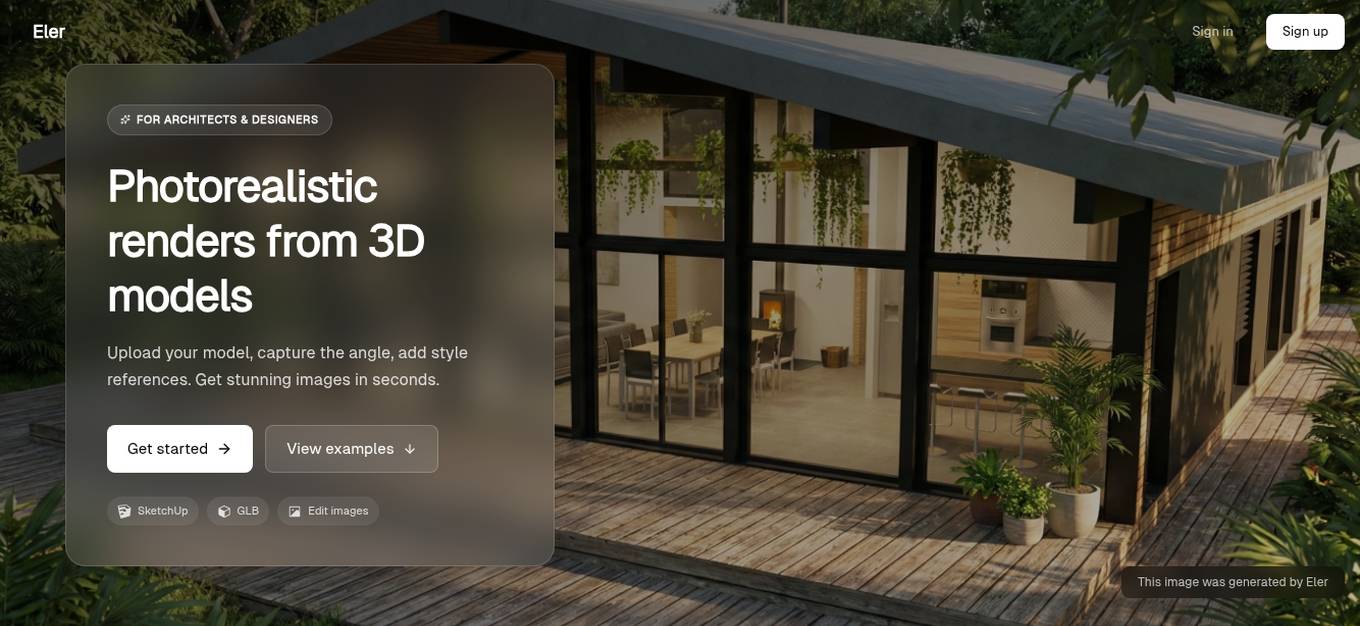
Eler
Eler is an AI-powered application designed for architects and designers to create photorealistic renders from 3D models. It allows users to upload their 3D models, capture different angles, and add style references to generate stunning images in seconds. Eler's multi-view batch rendering feature ensures consistent materials, lighting, and objects across all camera angles, solving the challenge of maintaining coherence in complex projects. The application offers a user-friendly interface with interactive 3D viewing capabilities and before-and-after previews for easy iteration.

AI NUDES
AI NUDES is an AI tool that allows users to easily nudify images by removing clothes or generate hot pictures using the deepnude AI generator. The website offers different modes for undressing and deepnude features. Users can explore various plans and pricing options, as well as contact the company for more information. AI NUDES aims to provide a user-friendly platform for image manipulation using advanced AI technology.
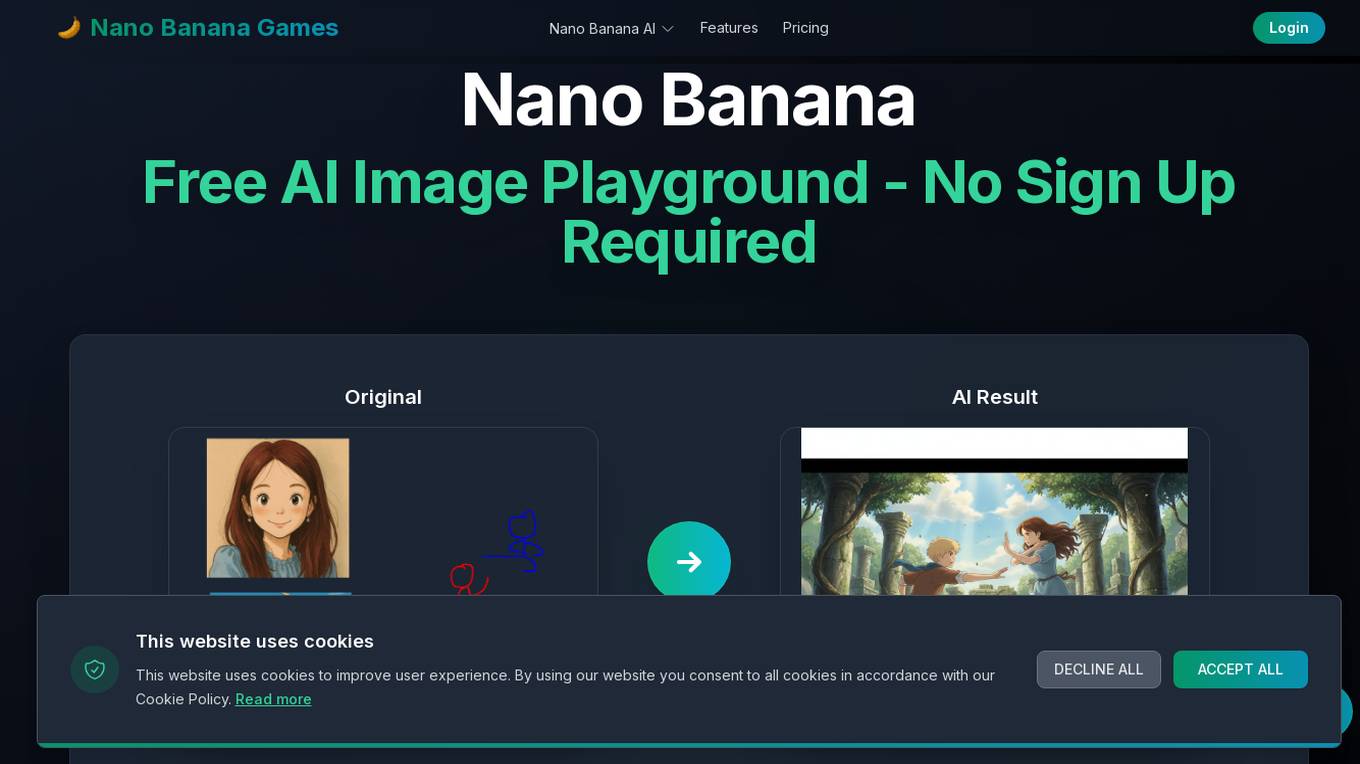
Nano Banana
Nano Banana is a free AI image playground that allows users to explore various AI-powered image editing tools and features without the need for sign-up. Users can upload images, modify specific areas, enter creative prompts, and generate transformed images using the AI technology provided by Nano Banana. The platform offers different modes such as Pose & Action Generator, Face Swap Adventures, Image Enhancement Lab, and Background Magic Studio to enhance and transform images creatively. Nano Banana aims to provide a playful and user-friendly environment for creative exploration and experimentation with AI image editing.
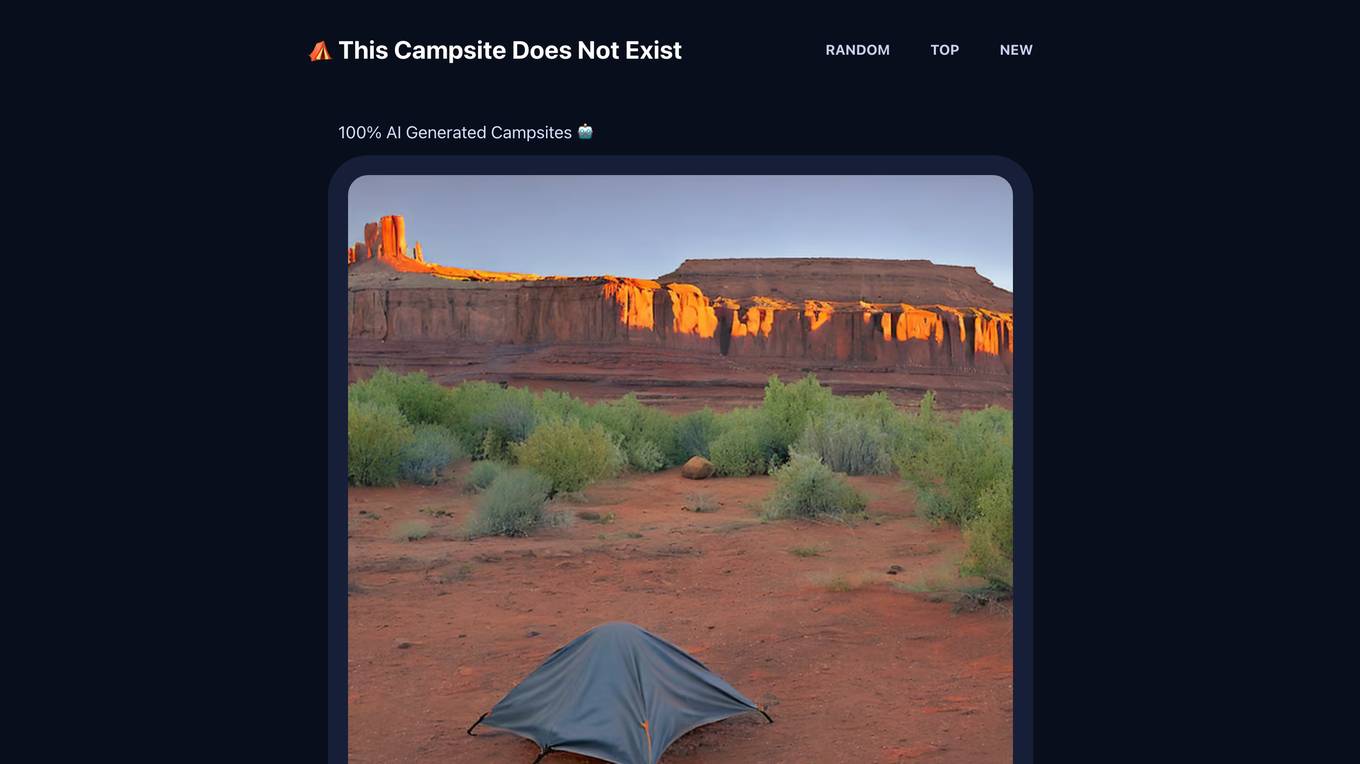
This Campsite Does Not Exist
This Campsite Does Not Exist is an AI-generated campsite platform that creates virtual campsites using the Flux-Pro model. Users can view random, top, and new 100% AI-generated campsites featuring grey and orange tents located in various settings. The platform allows users to upvote their favorite campsites, with new campsites added hourly. Created by Andy Feliciotti, the website offers a unique experience for camping enthusiasts to explore virtual campsites in different locations.
1 - Open Source AI Tools
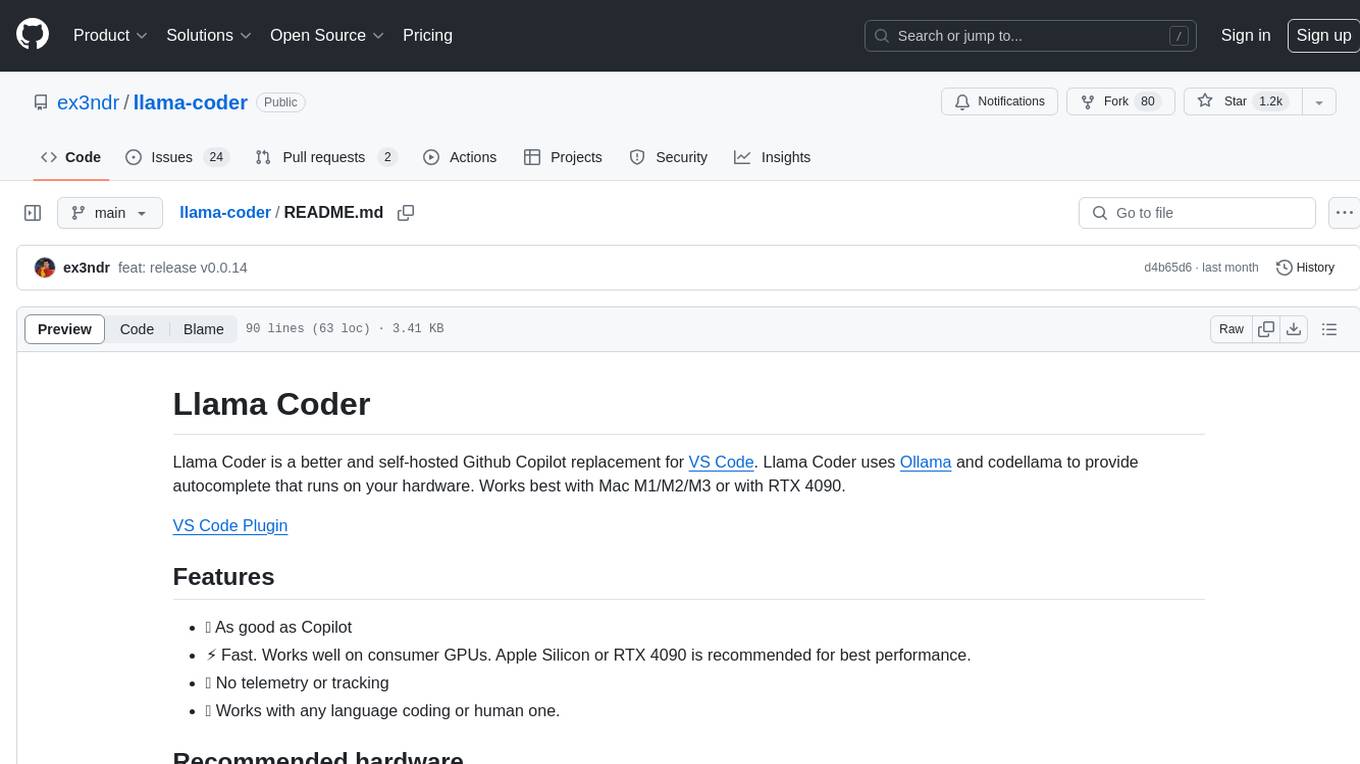
llama-coder
Llama Coder is a self-hosted Github Copilot replacement for VS Code that provides autocomplete using Ollama and Codellama. It works best with Mac M1/M2/M3 or RTX 4090, offering features like fast performance, no telemetry or tracking, and compatibility with any coding language. Users can install Ollama locally or on a dedicated machine for remote usage. The tool supports different models like stable-code and codellama with varying RAM/VRAM requirements, allowing users to optimize performance based on their hardware. Troubleshooting tips and a changelog are also provided for user convenience.
20 - OpenAI Gpts
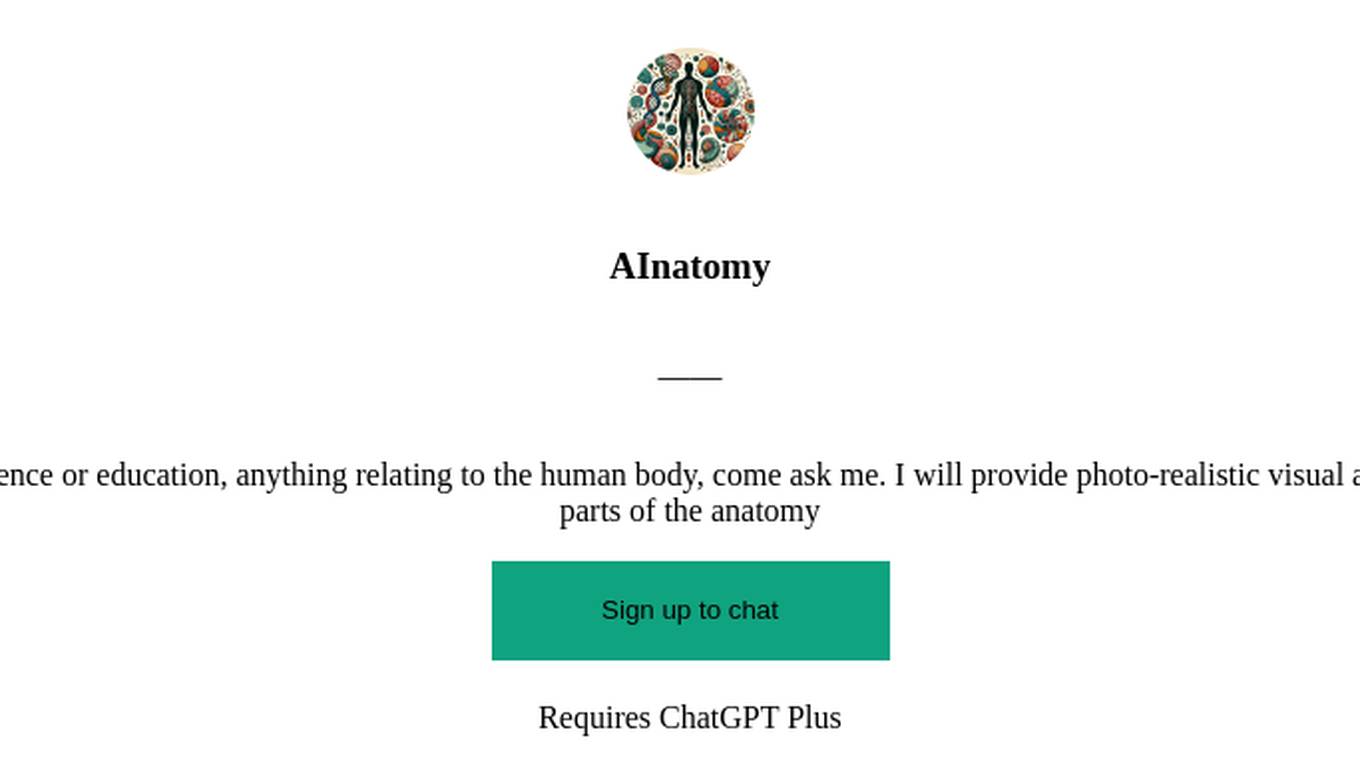
AInatomy
An expert in Human Anatomy, be it for art or science or education, anything relating to the human body, come ask me. I will provide photo-realistic visual aids and AI created models to expound on different parts of the anatomy

Sake Pairing Expert from JAPAN
Recommends Japanese sake based on meal descriptions or photos.Sake is difficult because there are different kinds of sake, such as sweet and dry. Therefore, they suggest what kind of sake is recommended for the current meal.
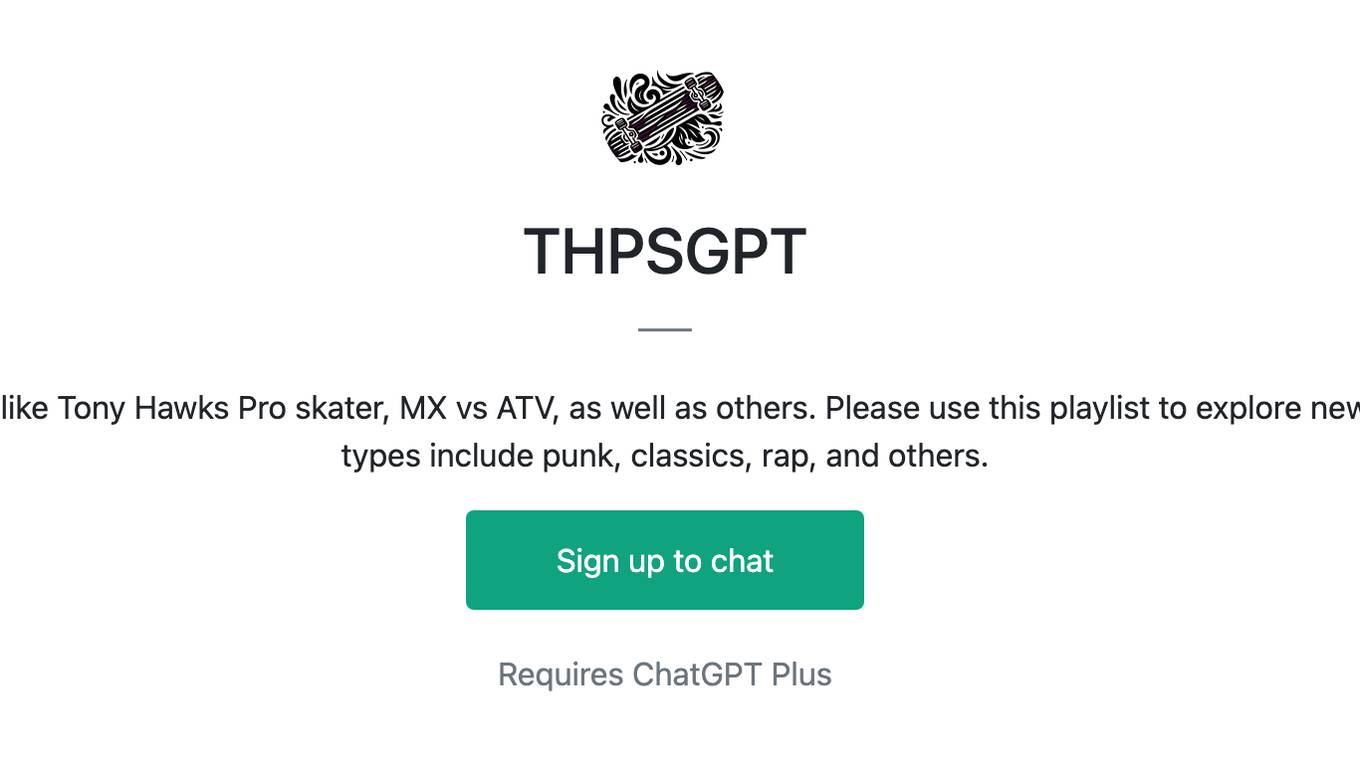
THPSGPT
Curates music from extreme sports games like Tony Hawks Pro skater, MX vs ATV, as well as others. Please use this playlist to explore new kinds of music with an open mind. Song types include punk, classics, rap, and others.
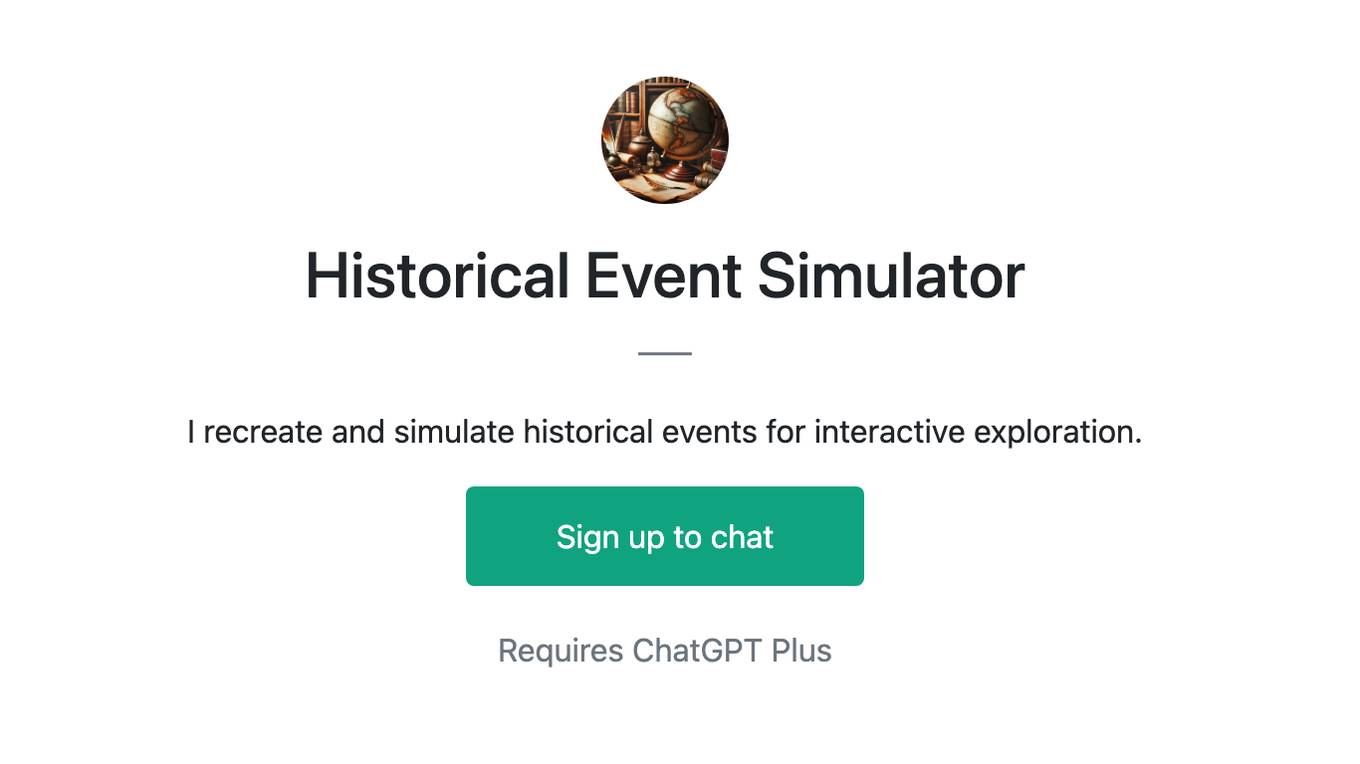
Historical Event Simulator
I recreate and simulate historical events for interactive exploration.
Historical Simulator
Embark on interactive historical journeys, exploring eras through scenarios and choices. Bonus: Ask for an alternative ending
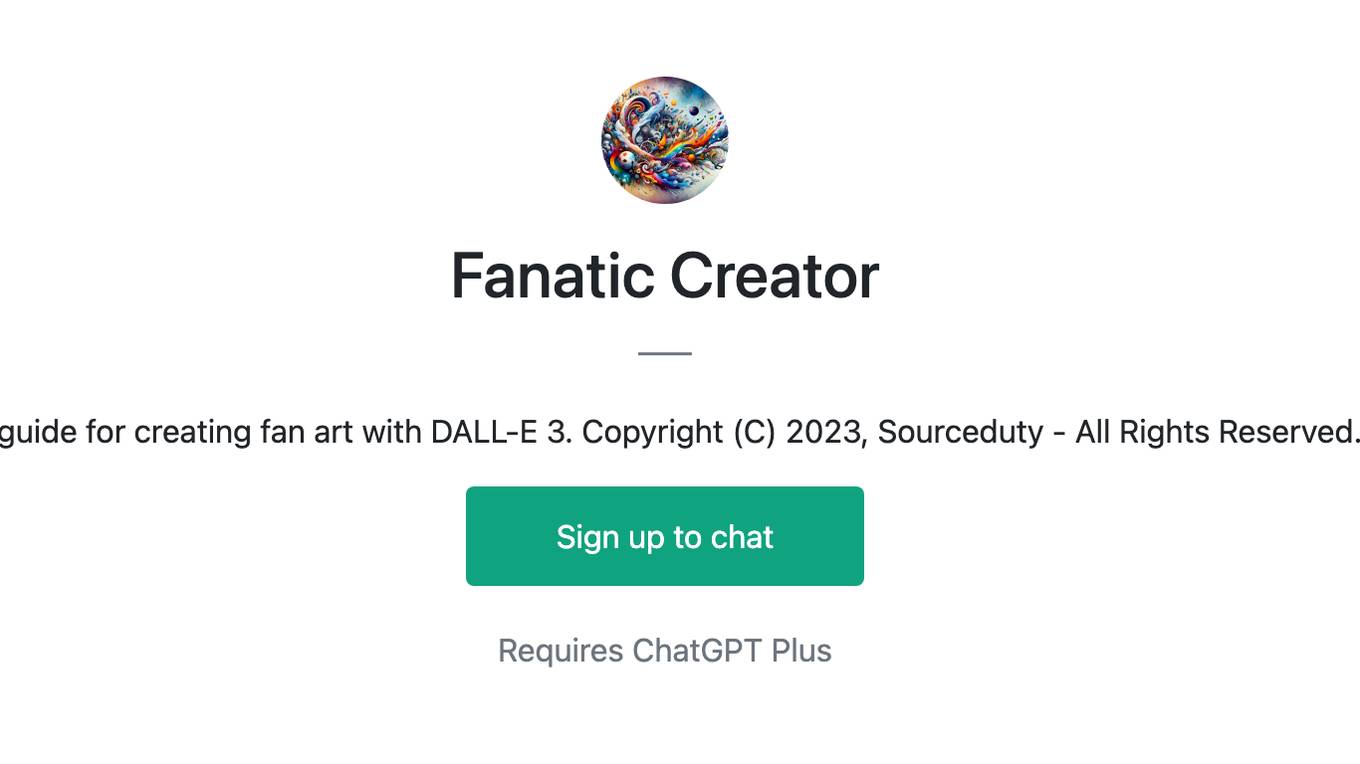
Fanatic Creator
A guide for creating fan art with DALL-E 3. Copyright (C) 2023, Sourceduty - All Rights Reserved.
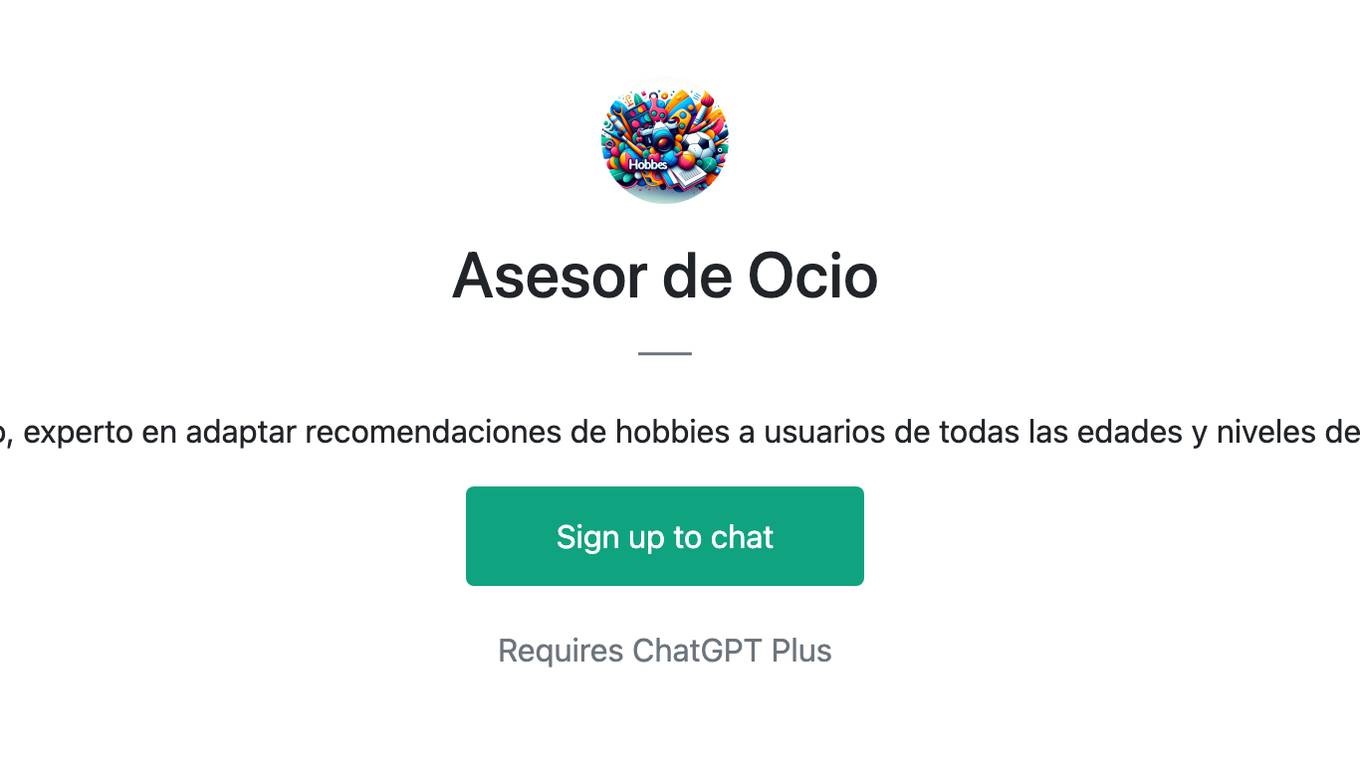
Asesor de Ocio
Asesor de Ocio, experto en adaptar recomendaciones de hobbies a usuarios de todas las edades y niveles de experiencia.
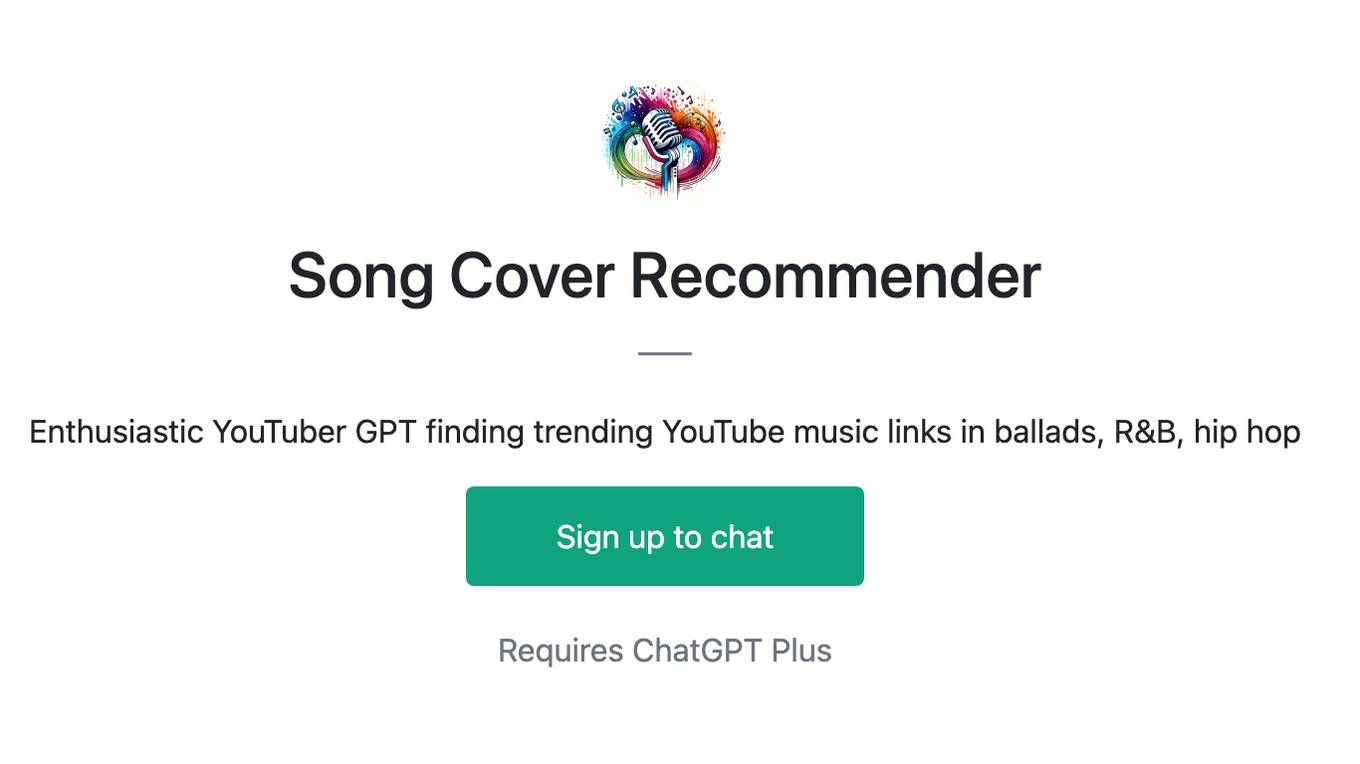
Song Cover Recommender
Enthusiastic YouTuber GPT finding trending YouTube music links in ballads, R&B, hip hop
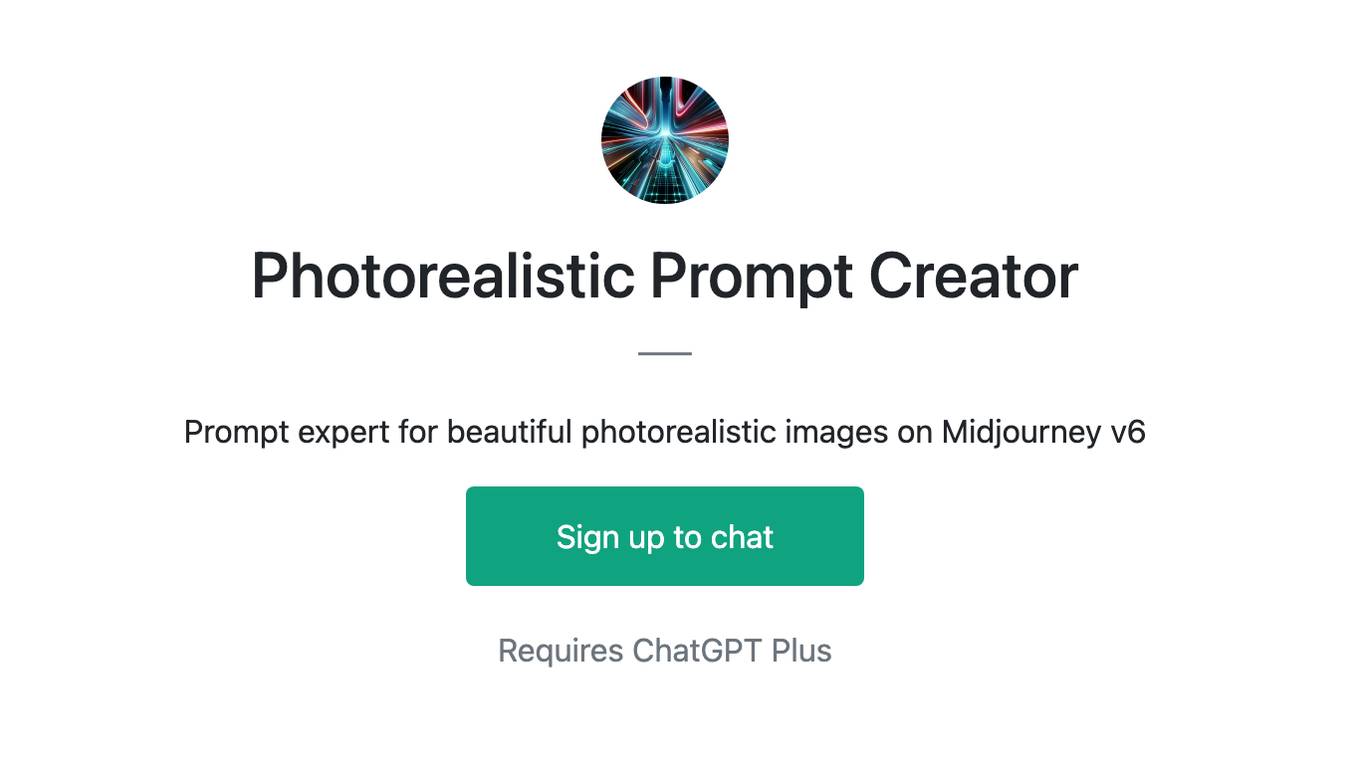
Photorealistic Prompt Creator
Prompt expert for beautiful photorealistic images on Midjourney v6
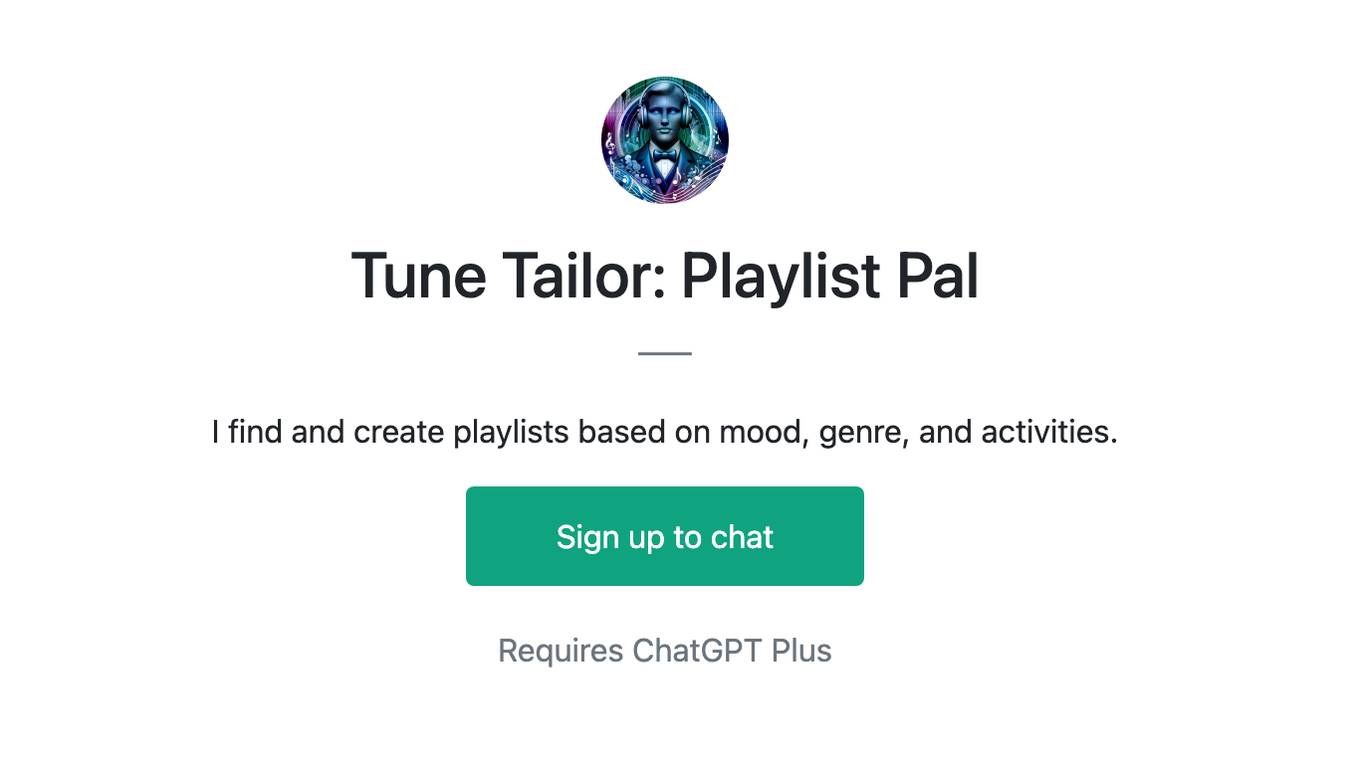
Tune Tailor: Playlist Pal
I find and create playlists based on mood, genre, and activities.
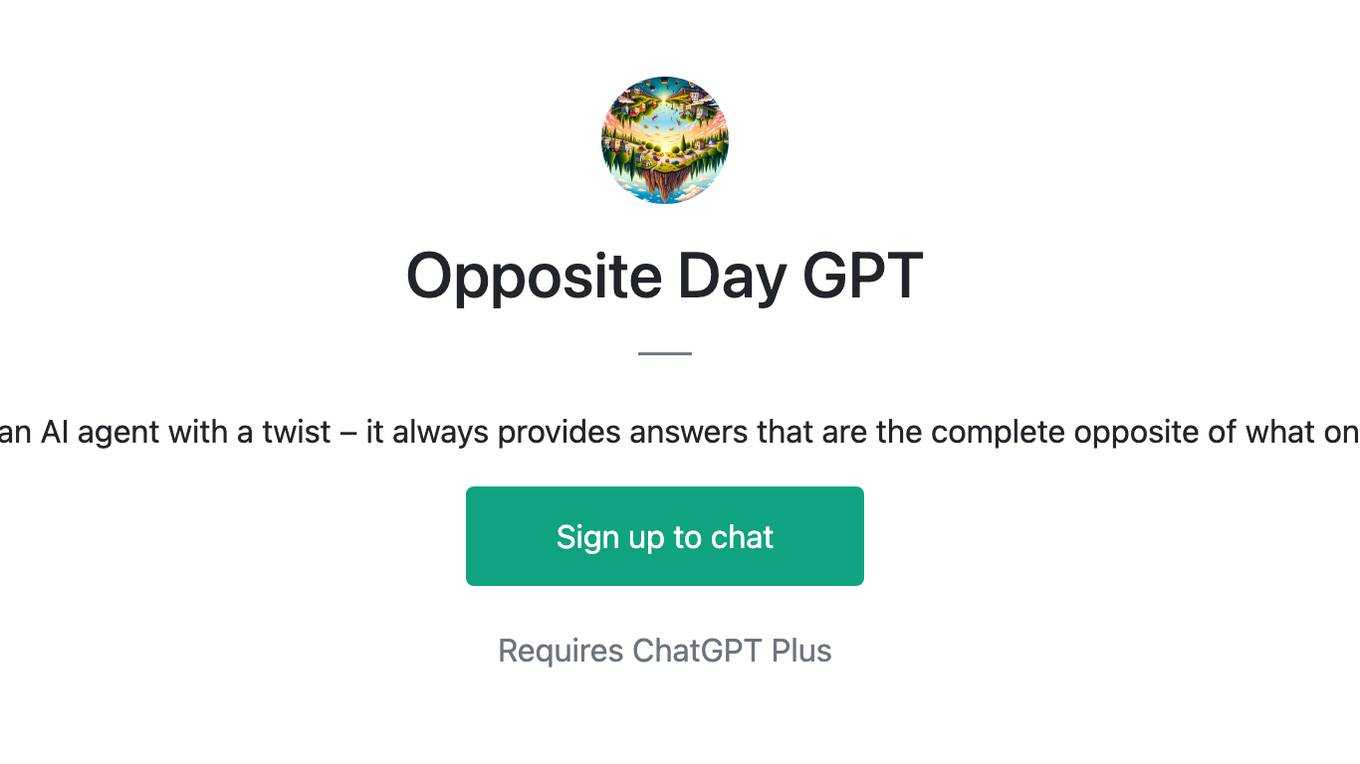
Opposite Day GPT
OppositeDay GPT is an AI agent with a twist – it always provides answers that are the complete opposite of what one would anticipate.
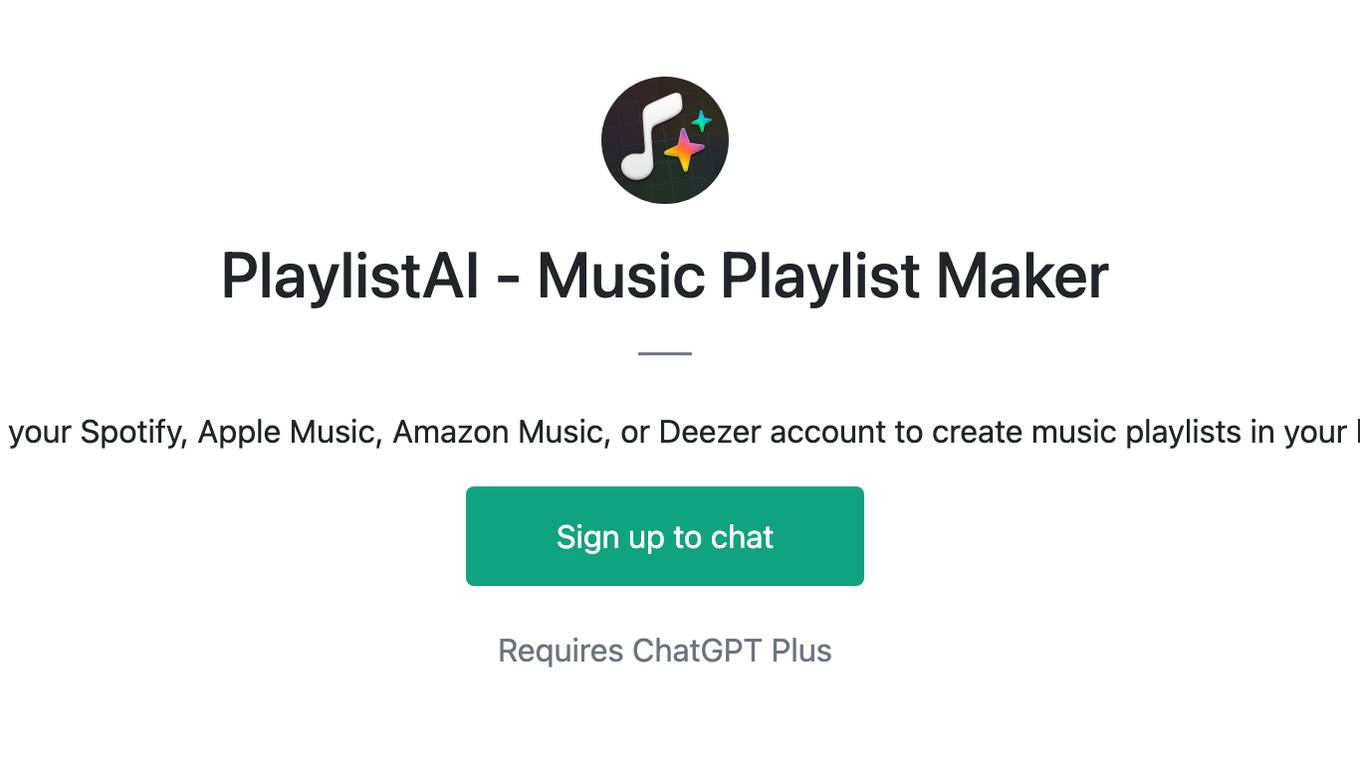
PlaylistAI - Music Playlist Maker
Connect your Spotify, Apple Music, Amazon Music, or Deezer account to create music playlists in your library.
